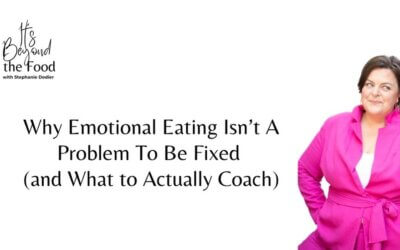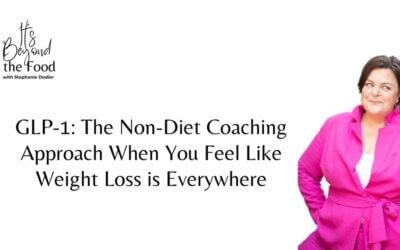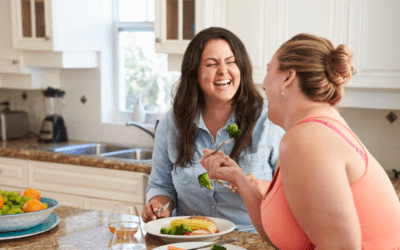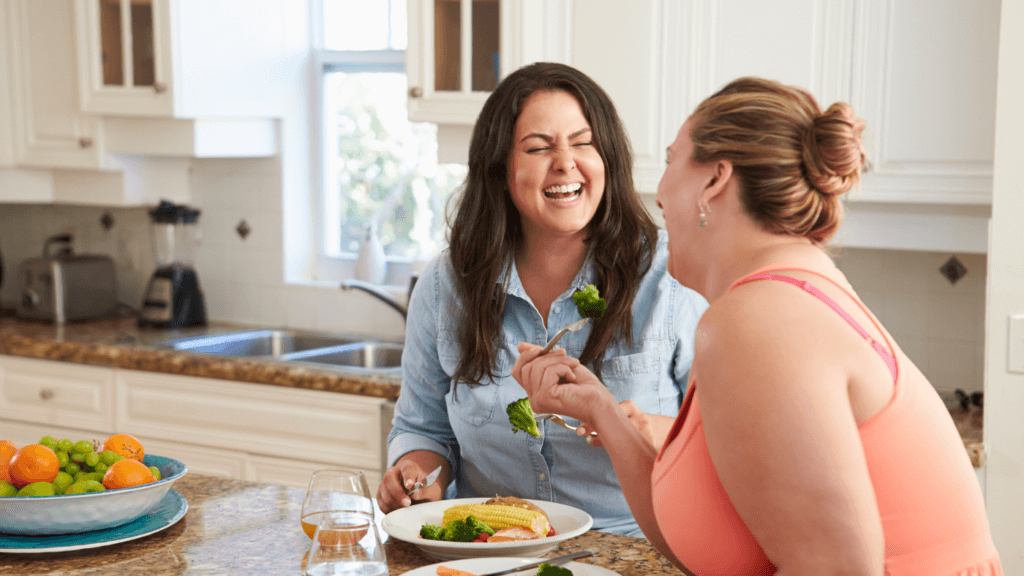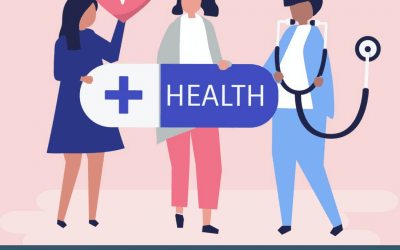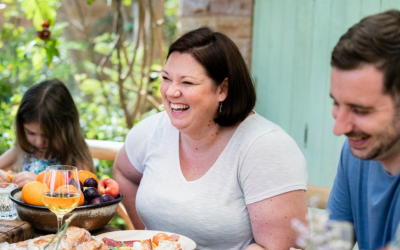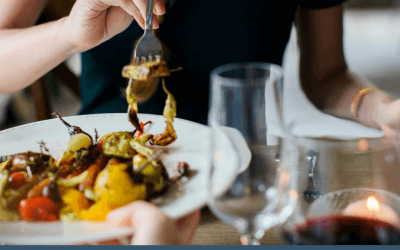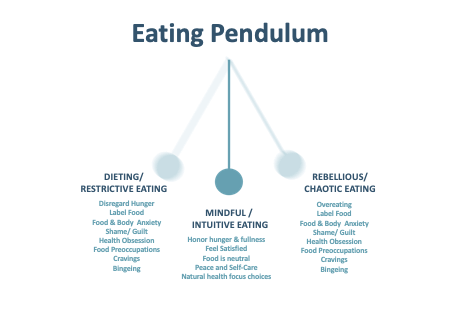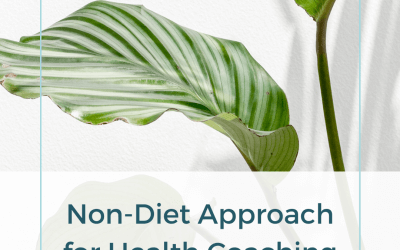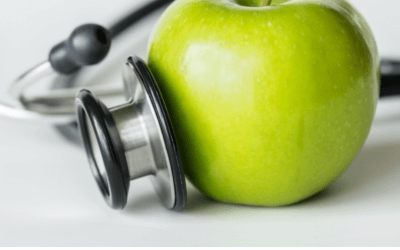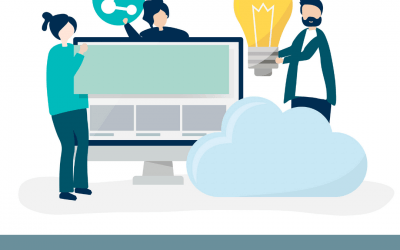Eating Intuitively Blogs
A Weight-Neutral Approach to Emotional Eating
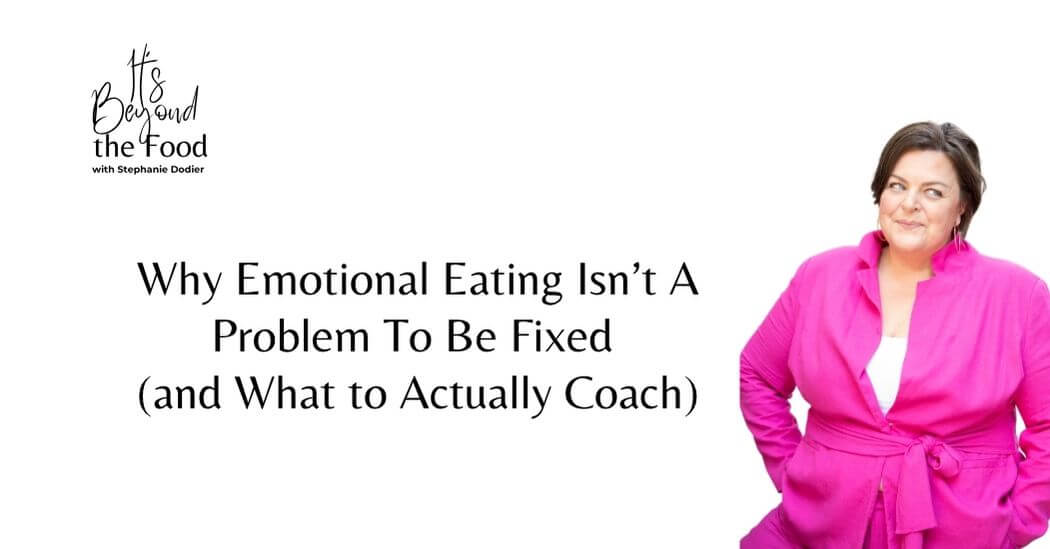

Emotional eating gets a bad rap—especially in wellness spaces where diet culture still lurks behind “clean eating” mantras and self-discipline pep talks. But what if emotional eating isn’t a problem to be fixed?
In weight-neutral coaching, we don’t pathologize normal human behavior. And yes, emotional eating is one of them.
Let’s explore a radically different way to understand and support emotional eating—one that centers curiosity, compassion, and long-term change.
Why Emotional Eating Isn’t the Problem
First, let’s get clear: emotional eating is simply eating in response to emotions rather than physical hunger. That’s it. And it’s something every human does. Think holiday meals, birthday cake, or comfort food after a tough day. None of this is inherently harmful.
So why is emotional eating treated like a moral failing?
Because diet culture taught us that any eating outside strict rules is wrong. It convinced us that emotional eating is the reason diets fail, rather than acknowledging that the diet itself is the problem.
In truth, emotional eating becomes a concern only when it’s the primary or sole strategy someone uses to regulate emotions—and even then, the issue isn’t the food. It’s the absence of alternative tools for emotional regulation.
Learn more in The Gift of Emotional Eating.
Rather listen to the audio version of this blog? We’ve got you…
Emotional Eating Exists on a Spectrum
Emotional eating isn’t black or white. It lives on a spectrum, influenced by context, motivation, and frequency.
Take these examples:
- Normal emotional eating: Enjoying holiday meals steeped in family tradition and love.
- Disordered emotional eating: Eating to numb feelings of shame, fear, or stress with no other coping tools.
Same behavior. Different context.
This is why labeling any emotional eating as “bad” misses the mark. It ignores the nuance, and it erases the humanity of the client in front of you.
Understanding the Spectrum of Eating Behavior & Body Dissatisfaction
To fully support clients, it helps to visualize the spectrum of eating behavior & body dissatisfaction behaviors. This image below illustrates how body awareness can shift into body preoccupation and even body paralysis, depending on emotional, social, and psychological factors.
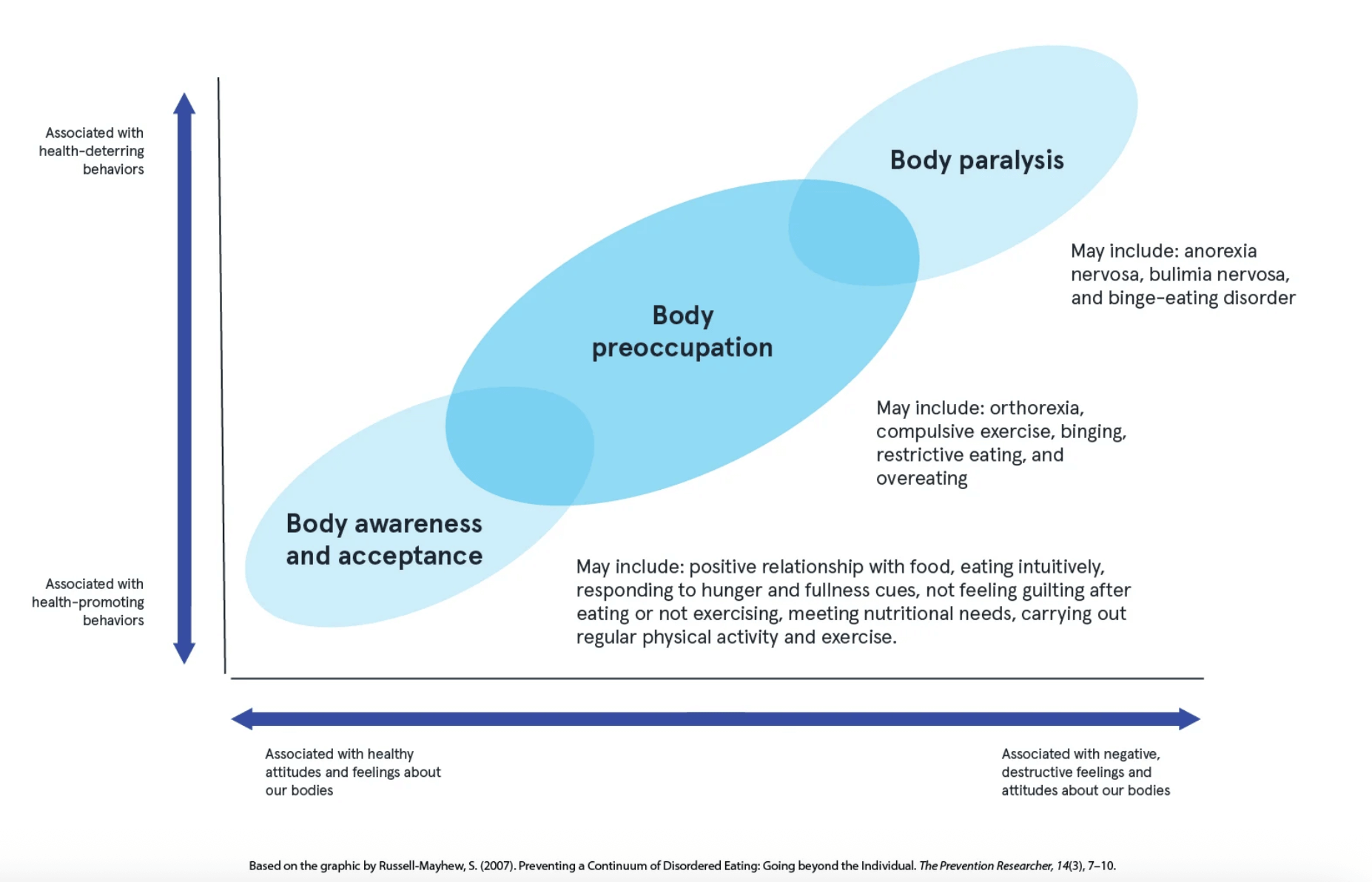

Based on the research: Preventing a Continuum of Disordered Eating: Going beyond the Individual
The Eating Pendulum: Another View on Why Emotional Eating Happens
Another helpful way to understand emotional eating is through the lens of the pendulum swing. When clients restrict their food intake—whether through dieting, clean eating, or food rules—they often find themselves swinging to the other extreme: bingeing, emotional eating, or compulsive eating. This isn’t a failure. It’s a biological and psychological response to deprivation.
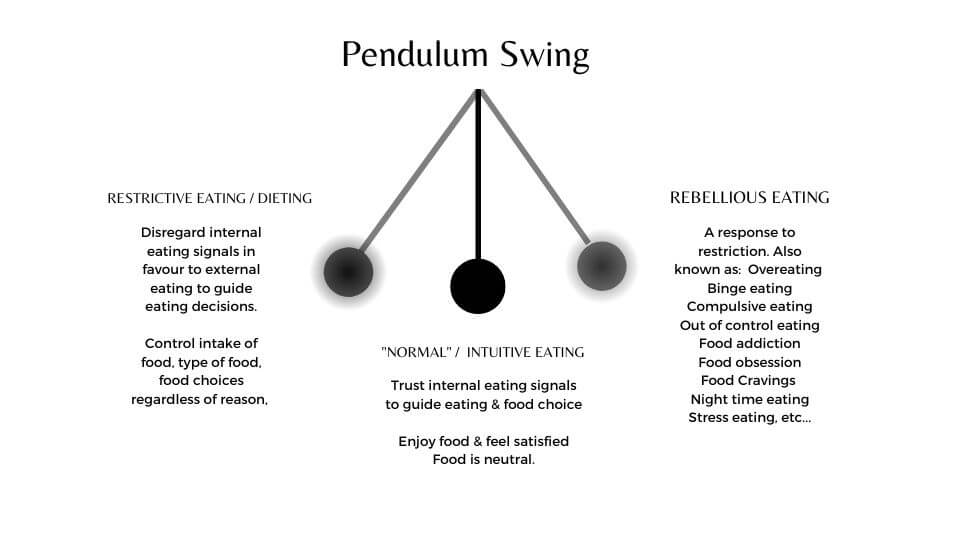

In the middle lies intuitive eating, where food is neutral, and decisions come from internal cues, not rules. Rebellion is not the problem. Restriction is. And emotional eating, in this context, is often a signal that something needs to shift.
The Real Work: Go Beyond the Food
Here’s the truth: you can’t coach emotional eating effectively if you only focus on food. You have to go beyond the plate and get curious about what’s happening underneath the behavior.
This means helping clients explore:
- What emotions trigger their eating behaviors
- How they’ve been taught to cope with discomfort
- Their beliefs about food, bodies, and worth
We use a cognitive-behavioral lens, because it helps us understand the beliefs and thoughts that drive eating behavior. We also bring in emotional and nervous system regulation skills—not to “fix” the eating, but to expand our client’s toolbox for care.
How to Coach Emotional Eating Without Reinforcing Diet Culture
Here are three coaching strategies to reframe emotional eating and support clients skillfully:
1. Normalize Emotional Eating
Start here. Teach clients that emotional eating is not a flaw. It’s a learned, adaptive behavior. It’s also an invitation to get curious.
Offer analogies: eating at a funeral or a wedding, childhood comfort meals, cultural traditions. Remind them that food has always been emotional.
2. Get Curious, Not Critical
Most clients come in ready to judge themselves. Instead, guide them to ask:
- “What am I feeling right now?”
- “What do I need right now?”
These questions open the door to self-awareness. They shift the focus from food as the enemy to the emotion as the messenger.
Teach the difference between curiosity for compassion and curiosity for judgment. That distinction changes everything.
3. Build Regulation Skills
This is where most trainings stop short. Knowing that emotional eating is normal is great. But your clients also need support learning new ways to respond to emotions.
That’s where coaching comes in. We teach emotional regulation, nervous system awareness, and body attunement so clients have more choices than just food.
Redefining Success: Behaviors, Not Bodies
A weight-neutral approach doesn’t aim to eliminate emotional eating. It aims to expand a client’s capacity to meet their emotions with compassion and choice.
When emotional eating becomes one of many tools—instead of the only one—clients start to feel empowered. And that shift doesn’t just change how they eat. It changes how they live.
Explore Intuitive Eating as a supportive path forward.
Let’s stop pathologizing emotional eating and start honoring it as the doorway to deeper healing.
Ready to Coach Emotional Eating with Skill (Not Scripts)?
You can access all of our services on our work with us page. We have a number of programs and service levels enabling us to serve most women:
Free Resources and Masterclasses: Get started and get to know us better!
Private coaching with Stephanie and her team Stephanie and her team of Certified Non-Diet Coaches are waiting to support you in a one-to-one setting with an individualized plan.
Non-Diet Coaching Certification for professionals ready to integrate the Going Beyond The Food Method™️ in their practice and for women wanting to become a Certified Coach and build a business coaching other women beyond the food.
The GLP-1 Dilemma: A Weight-Neutral Coaching Approach
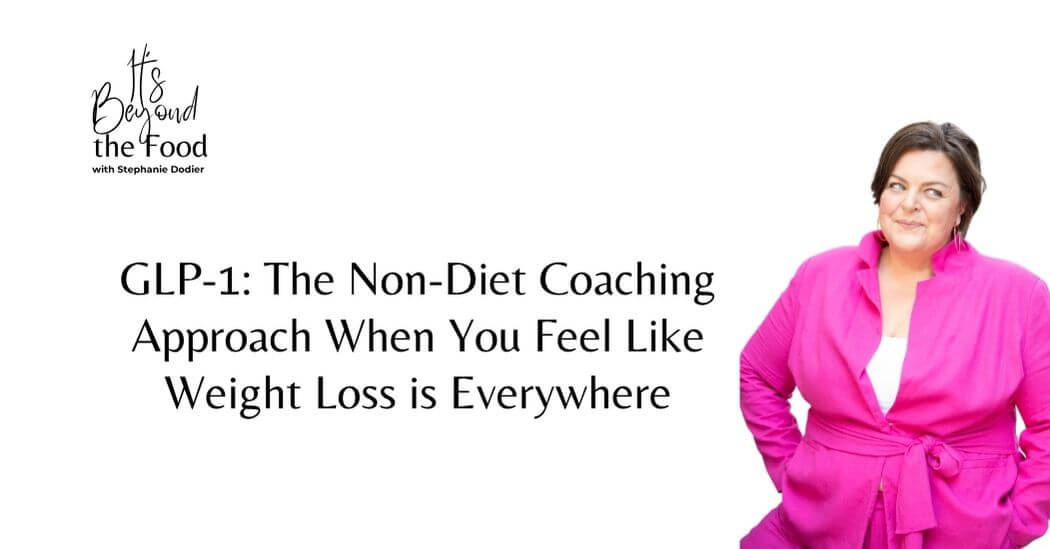

In today’s cultural climate, weight loss dominates nearly every health-related conversation. Whether it’s doctor recommendations, social media ads, or celebrity interviews, the pressure to shrink is ever-present. Now, with the soaring popularity of GLP-1 medications like Ozempic and Wegovy, that pressure has intensified.
For non-diet, weight-inclusive professionals, this can feel like an existential moment. Many are asking: How do I support my clients through this without abandoning my values? Can I remain weight-neutral while honoring someone’s interest in GLP-1s?
These questions mark a pivotal coaching evolution. Enter GLP-1 weight-neutral coaching—a framework that centers client autonomy, informed consent, and emotional safety.
The Moment We’re In
GLP-1 medications were originally developed to manage type 2 diabetes. However, when Wegovy received FDA approval for weight management in 2021, the conversation changed. These drugs began making headlines for their weight loss effects, prompting a rush of public interest.
Now in 2025, GLP-1s are everywhere. Many clients—even those who previously rejected diet culture—are reconsidering weight loss through a new, medicalized lens.
This shift is leaving many non-diet coaches feeling confused, silenced, or unsure how to respond. Some view it as a betrayal. Others retreat from the conversation altogether.
But avoidance isn’t neutral. Silence doesn’t serve your clients. And judgment won’t help them heal.
Rather listen to the audio version of this blog? We’ve got you…
What Is GLP-1 Weight-Neutral Coaching?
GLP-1 weight-neutral coaching provides an alternative path—one rooted in clarity, nuance, and respect. It rejects the binary of being “for” or “against” these medications. Instead, it offers tools to support clients in making truly autonomous health decisions.
This model is anchored in five key principles:
1. Anti-Oppression Lens
Coaching must recognize the social and systemic forces at play. Fatphobia, classism, and racism influence access to care and drive many people toward weight loss solutions. A weight-neutral coach works to resist these forces.
2. Bodily Autonomy
Every client has the right to make decisions about their body without coercion. Your role is not to approve or disapprove of their choice—it’s to create a safe space for exploration.
3. Intersectionality
Clients exist at the intersection of multiple identities. Race, gender, body size, disability, and financial status all shape their relationship to food and health. A GLP-1 conversation without acknowledging those realities is incomplete.
4. Collaboration
GLP-1 weight-neutral coaching is a shared process. Coaches don’t tell clients what to do. Instead, they co-create space for reflection, insight, and forward movement.
5. Cognitive-Behavioral Foundation
Instead of focusing solely on behavior (e.g., starting or stopping a drug), we examine the beliefs and emotions that drive it. What does the client hope to gain? What are they afraid will happen if they don’t lose weight?
The Coaching Opportunity Within the GLP-1 Conversation
Many coaches feel pressure to take a stance on GLP-1s. But that binary framing—approve or disapprove—misses the point. The real coaching opportunity lies in helping clients unpack the why.
What fear is driving the desire for weight loss? What past experiences are shaping their health choices today? What vision of wellness do they truly want to create?
Coaching questions that guide this inquiry may include:
“What are you hoping GLP-1 will solve for you?”
“If weight weren’t a factor, what would feeling good in your body look like?”
“Can we explore the possibility that you already know what you need?”
By helping clients move from fear into clarity, you offer them far more than a yes-or-no answer. You help them reclaim agency.
What the Research (Actually) Says
Most of the mainstream information about GLP-1s comes from pharmaceutical-funded studies. That means the data is often framed in ways that favor drug use.
Independent review shows:
Weight loss typically plateaus after one year of use.
Sustained weight loss requires continued medication use. Stopping often results in rebound weight gain.
74% of users report side effects, including nausea, diarrhea, and constipation.
Serious side effects—such as intestinal blockage or suicidal ideation—though rare, have been reported.
There is no unbiased long-term safety data for GLP-1s in general populations.
Cardiometabolic improvements appear to be linked to calorie restriction, not the drug alone.
Clients deserve access to this context. Tools like the patient-facing informed consent document created by Medical Students for Size Inclusivity can support this education process.
Coaching in Action: From Fear to Autonomy
Take the example of “Julie,” a 51-year-old woman recently diagnosed with prediabetes. Her doctor told her she had six months to “get it together,” or he’d prescribe GLP-1s. Terrified, she turned to coaching—not because she wanted a prescription, but because she didn’t want to become like her mother, who lives with chronic illness and limited mobility.
Julie’s fear wasn’t about vanity. It was about loss—of freedom, of identity, of life quality.
Through coaching, we unpacked her fear, discussed GLP-1 research, and explored weight-neutral health strategies. What emerged was a deeper understanding of her triggers, diet history, and emotional pain. Eventually, Julie chose a path of behavior change grounded in self-respect, not desperation.
This kind of transformation is only possible when coaching centers the person, not the medication.
The Business Side: Are You Reaching the Right Audience?
If your feed feels full of clients obsessed with GLP-1s, you may be speaking to people in the pre-contemplation or contemplation stages of behavior change. These individuals are still rooted in diet culture and may not be ready to explore weight-neutral frameworks.
Effective marketing for weight-neutral professionals speaks to people in the preparation or action stages—those who are curious, skeptical of the mainstream, and ready for something different.
This doesn’t mean you need to change your message. It means your messaging strategy might need refining.
GLP-1 as a Gateway, Not a Threat
GLP-1s are not the enemy. They are a gateway to deeper questions—questions about body trust, internalized beliefs, autonomy, and healing.
Your clients don’t need you to save them from GLP-1s. They need you to hold space for complexity, fear, and agency. They need you to help them find their voice again in a system that tells them they don’t know what’s best for their body.
That’s what GLP-1 weight-neutral coaching makes possible.
Final Thoughts
We are in a pivotal moment—one where weight loss is being rebranded as medicine, and autonomy is increasingly hard to hold. As coaches, we are uniquely positioned to resist coercion and champion client sovereignty.
GLP-1 weight-neutral coaching is not just a skill set. It’s a liberatory stance. It’s how we show up for our clients, for ourselves, and for the future of inclusive care.
If you’re ready to coach with nuance, courage, and clarity, this approach is for you.
Need Help with Weight-Neutral Coaching?
You can access all of our services on our work with us page. We have a number of programs and service levels enabling us to serve most women:
Free Resources and Masterclasses: Get started and get to know us better!
Private coaching with Stephanie and her team Stephanie and her team of Certified Non-Diet Coaches are waiting to support you in a one-to-one setting with an individualized plan.
Non-Diet Coaching Certification for professionals ready to integrate the Going Beyond The Food Method™️ in their practice and for women wanting to become a Certified Coach and build a business coaching other women beyond the food.
Why You Shouldn’t “Indulge” During the Holiday: ‘tis the season to smash down diet culture


The holiday season is a time of celebration, reflection, and joy. Yet, for many, it also comes laden with the weight of diet culture and its insidious grip. From the portrayal of women in holiday movies to societal expectations about indulgence and self-restraint, the season has long been entwined with patriarchal systems and diet culture narratives. This article explores the roots of these traditions and offers strategies to reclaim your holiday experience, diet-culture free.
The Patriarchal Roots of the Holidays
The modern holiday season is a blend of ancient traditions, Christianity, and consumerism. Initially tied to winter solstice celebrations, the holidays were historically about community and feasting. As Christianity gained prominence, religious elements merged with these practices. By the 19th century, Christmas had become a commercial enterprise, shifting focus from spirituality to consumption.
Patriarchy has played a key role in shaping holiday norms. From the gendered division of labor in holiday preparations to the expectation that women must create perfect celebrations, patriarchal systems have normalized the emotional and physical labor of the season for women. This dynamic also extends to diet culture, a tool of patriarchy that keeps women focused on controlling their bodies rather than asserting their power.
How Diet Culture Thrives During the Holidays
Diet culture is particularly potent during the holidays, exploiting themes of indulgence, guilt, and control. The narrative often goes like this:
- Indulge now, restrict later: The idea of holiday feasting is weaponized with the promise of New Year’s resolutions to “atone” for excess.
- Moralizing food choices: Phrases like “cheat day” or “being good” reinforce the idea that eating certain foods determines personal value.
- Pressure to prepare for the New Year: The “New Year, New You” rhetoric capitalizes on holiday guilt, selling solutions to problems diet culture itself created.
These narratives are everywhere—in movies, ads, and even casual conversations. Women’s magazines and online content emphasize self-restraint, while men’s content often highlights pleasure and relaxation, reflecting a stark double standard.
Rather listen to the audio version of this blog? We’ve got you…
How Patriarchy Shapes Holiday Diet Culture
The portrayal of women in holiday culture often reinforces diet culture and patriarchal norms. Consider these examples:
- Holiday Movies: Women are typically shown as self-sacrificing, managing endless holiday tasks while maintaining a “perfect” appearance. Their worth is tied to how well they fulfill these roles.
- Body Image in Media: Holiday visuals are dominated by thin, conventionally attractive characters, perpetuating unrealistic beauty standards.
- Food Messaging: Women are encouraged to “indulge” cautiously, while men are rarely subjected to such scrutiny.
These dynamics keep women in cycles of striving, guilt, and self-denial, making it harder to break free from these oppressive systems.
Breaking Free: How to Navigate the Holidays Diet-Culture Free
Awareness is the first step to change. Here’s how to navigate the season free from the constraints of diet culture:
1. Redefine Indulgence
The word “indulge” is often loaded with guilt and moral judgment. Instead, embrace the idea that food is a source of nourishment and joy. Remind yourself that no food is inherently “bad” or “good.” All foods fit into a balanced, intuitive approach to eating.
Action Step: Replace “I’m indulging” with “I’m enjoying.” Focus on the experience of savoring food without attaching guilt to it.
2. Shift the Focus from Food to Connection
The holidays are about more than what’s on the table. Reframe your celebrations to prioritize connection, relaxation, and reflection over food and appearance.
Action Step: Plan activities that emphasize bonding, such as games, outdoor walks, or sharing gratitude with loved ones.
3. Challenge Media Messages
Be critical of the holiday media you consume. Notice how women and men are portrayed differently and question the messages you’re absorbing.
Action Step: Discuss these observations with friends or family to raise awareness about these patterns. For example, point out gendered stereotypes in holiday movies during family movie nights.
4. Say No to “New Year, New You” Pressure
The New Year often brings a surge of dieting ads and fitness challenges. Reject the idea that your worth is tied to transforming your body.
Action Step: Set intentions that prioritize self-care and joy over physical appearance. For example, focus on learning a new skill or dedicating time to a hobby.
5. Reclaim Your Holiday Traditions
Patriarchy and diet culture have long dictated what the holidays “should” look like. It’s time to redefine these traditions on your terms.
Action Step:
- Simplify holiday tasks. Let go of unnecessary obligations that drain your energy.
- Celebrate in ways that feel authentic to you, whether that means skipping the turkey or enjoying a favorite family dish without guilt.
Cultivating Awareness and Passing It On: How to Navigate the Holidays Diet-Culture Free
Breaking free from diet culture during the holidays is not just an act of self-care but also a way to challenge systemic oppression. By refusing to participate in these harmful narratives, you pave the way for others—especially children—to experience the holidays without internalized shame or guilt.
When you model an intuitive, guilt-free approach to food and traditions, you contribute to a cultural shift that prioritizes well-being over unrealistic ideals.
Final Thoughts: A Season of Liberation
Navigating the holidays without diet culture is a radical act of self-love and resistance. By understanding the roots of holiday traditions and recognizing the systems at play, you can reclaim the joy and meaning of the season.
Let this be the year you celebrate on your terms—free from guilt, restriction, and the weight of oppressive narratives. Because the true spirit of the holidays lies in connection, love, and the freedom to be unapologetically yourself.
Want to Learn More How to Navigate the Holidays Diet-Culture-Free?
You can access all of our services on our work with us page. We have a number of programs and service levels enabling us to serve most women:
Free Resources and Masterclasses: Get started and get to know us better!
Private coaching with Stephanie and her team Stephanie and her team of Certified Non-Diet Coaches are waiting to support you in a one-to-one setting with an individualized plan.
Non-Diet Coaching Certification for professionals ready to integrate the Going Beyond The Food Method™️ in their practice and for women wanting to become Certified Coach and build a business coaching other women beyond the food.
7 Ways to Eat Healthy Simply Without Diet Culture and Restriction
7 Ways to Eat Healthy Simply Without Diet Culture and Restriction
Are you tired of feeling trapped by restrictive diets and confusing wellness trends? As a clinical nutritionist and certified intuitive eating counselor, I’m here to show you that it’s possible to eat healthy without buying into diet culture or imposing harsh restrictions on yourself. In this post, we’ll explore seven empowering ways to nourish your body and mind, free from the constraints of traditional diet mentality.
The Problem with Diet Culture and Restrictive Eating
Before we dive into our healthy eating strategies, it’s crucial to understand why traditional diets often fail us. Diet culture promotes a one-size-fits-all approach to nutrition, often encouraging restrictive eating patterns that are unsustainable and potentially harmful. These approaches can lead to:
– Disordered eating behaviors
– A negative relationship with food
– Ignoring your body’s natural hunger and fullness cues
– Feelings of guilt and shame around eating
Let’s break free from these harmful patterns and embrace a more intuitive, sustainable approach to healthy eating.
1. Build a Healthy Relationship with Food
The foundation of truly healthy eating lies in developing a positive relationship with food. This means:
– Stopping the use of food as a weapon to manipulate your body
– Letting go of the idea that food is solely a tool to change your appearance
– Learning to trust and respect your body’s signals
By shifting your mindset, you’ll be able to make food choices from a place of self-care rather than self-punishment.
2. Honor Your Hunger: Eat Enough Food
Many women have a distorted view of what constitutes “enough” food.
To eat healthy without restriction, it’s essential to tune into your body’s natural hunger and fullness cues. This is a fundamental principle of intuitive eating, which encourages you to honor your body’s needs rather than following external rules.
3. Seek Satisfaction and Pleasure from Food
Here’s a concept that might feel revolutionary: it’s okay to enjoy your food! In fact, finding pleasure and satisfaction in eating is crucial for sustainable healthy eating. Try:
– Allowing yourself to eat foods you genuinely enjoy
– Being present and mindful during meals
– Savoring the flavors, textures, and aromas of your food
Remember, food is not just fuel – it’s also a source of comfort, celebration, and connection with others.
Think of steps 1-3 as your high school diploma in healthy eating of eating and 4-7 as your college degree.
4. Balance Your Macronutrients
Once you’ve mastered the basics of honoring your hunger and finding pleasure in food, you can start focusing on nutritional balance. Aim to include a mix of:
– Proteins
– Healthy fats
– Complex carbohydrates
The key is to approach this balance without guilt or rigid rules. Some meals might be perfectly balanced, while others might not – and that’s okay!
5. Embrace Imperfection in Your Eating Habits
Perfection is the enemy of progress, especially when it comes to healthy eating. Give yourself permission to be imperfect by:
– Letting go of “good” and “bad” food labels
– Allowing flexibility in your eating patterns
– Recognizing that one meal or day of eating doesn’t define your overall health
Remember, consistent habits over time are far more important than striving for perfection at every meal.
6. Diversify Your Diet with a Variety of Foods
Eating a wide range of foods not only ensures you’re getting a broad spectrum of nutrients but also keeps meals interesting and satisfying. Focus on:
– Incorporating a rainbow of fruits and vegetables
– Trying new whole grains and protein sources
– Experimenting with different herbs and spices
By embracing variety, you’ll naturally create a more balanced and nutrient-rich diet without feeling restricted.
7. Individualize Your Approach: Listen to Your Body
The ultimate level of healthy eating without diet culture is learning to truly individualize your food choices based on your body’s unique needs. This involves:
– Paying attention to how different foods make you feel
– Adjusting your eating patterns based on your body’s responses
– Trusting that you know your body better than any external “expert”
This step requires practice and patience, but it’s the key to developing a sustainable, personalized approach to nutrition that serves you for life.
Putting It All Together: Your Path to Intuitive, Healthy Eating
By following these seven steps, you can create a healthy eating pattern that’s free from the constraints of diet culture and unnecessary restrictions. Remember, this journey is about progress, not perfection. It’s okay to take small steps and gradually incorporate these principles into your life.
As you move forward on this path, you’ll likely find that:
– Food becomes less of an obsession
– You’re able to eat when hungry and stop when full
– Meals become a source of enjoyment rather than stress
Remember, true health encompasses not just what you eat, but also how you think about food and your body. By rejecting diet culture and embracing intuitive, restriction-free eating, you’re taking a powerful step towards overall well-being and a more joyful relationship with food.
Are you ready to start your journey towards healthy eating without diet culture?
You can access all of our services on our work with us page. We have a number of programs and service levels enabling us to serve most women:
Free Resources and Masterclasses: Get started and get to know us better!
Private coaching with Stephanie and her team Stephanie and her team of Certified Non-Diet Coaches are waiting to support you in a one-to-one setting with an individualized plan.
Non-Diet Coaching Certification for professionals ready to integrate the Going Beyond The Food Method™️ in their practice and for women wanting to become Certified Coach and build a business coaching other women beyond the food.
Which diet is best for your health?
I was inspired to write this article based on a community member question, “Which diet is best for my health? I need to lose weight to be healthy… right?”
I hope this article helps you determine what is the best diet for you! (Hint: It may not be what you think.) Here’s what we’ll cover in this article:
What does it mean to be healthy?
Does “obesity” cause one to be unhealthy?
Is health beyond dieting and weight loss possible?
What is a weight-neutral approach to health?
Sustainability and health beyond dieting
Who is an ideal candidate for weight-neutral approach to health?
Why It’s Hard to Change Your Beliefs About Weight and Health
The prevalent diet culture conditioned us to believe that thinner is better in all aspects of life including our health. Therefore, dieting is the answer to health so there has to be a “best diet” … right?
We’ve always heard that thin equals healthy, and that dieting is the way to a thinner body. It’s the same indoctrination that leads us into thinking that a thinner body is more attractive because it is associated with health.
What does it mean to be healthy?
We all grew up with the idea that health is the absence of illness. But the World Health Organization has a definition of health that’s different from what we’re all used to. WHO defines health as “a complete state of physical, emotional, and social well-being, not merely the absence of disease or infirmity.”
Good health is essential to being able to handle stress and live a long and active life. It doesn’t just refer to the absence of disease, but also to the ability to recover from illness, to adapt to life challenges in general.
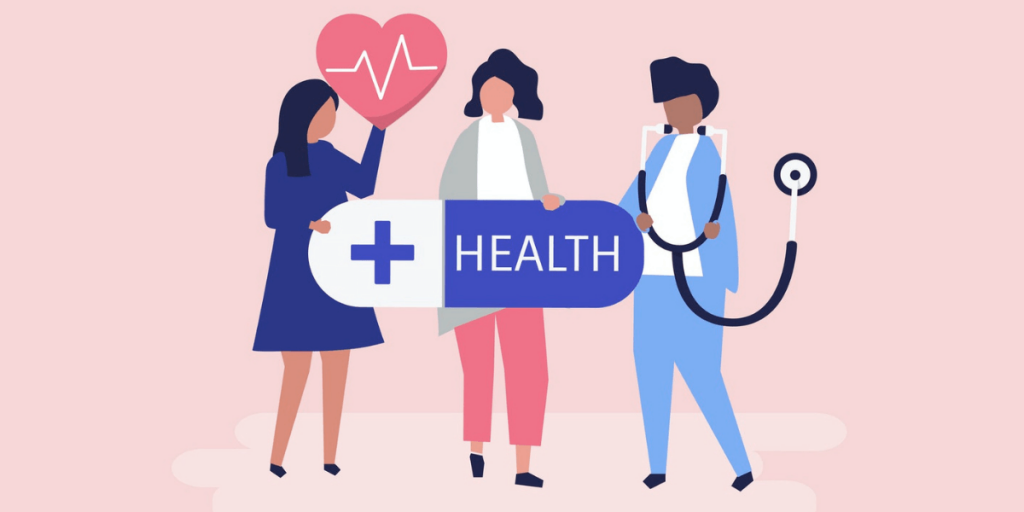

Does “obesity” cause one to be unhealthy?
The keyword here is CAUSE. Before we can answer the question, we must first understand the difference between correlation and causation. For example, smoking is correlated with alcoholism, but it doesn’t cause alcoholism. However, smoking causes an increased risk of developing lung cancer.
For example, a research found that obesity does not affect the risk of having coronary heart disease and stroke “Metabolic status is relatively stable despite rising BMI”. (However, it does increase the risk of developing diabetes)
But if the question is, “Is obesity associated or correlated with health risks?” the answer would be yes. If the question is “Is obesity causing disease?” the answer would be no. That’s where the big difference lies.
Here’s where it gets interesting – one-third to three-quarters of people classified as obese are actually metabolically healthy. Being metabolically healthy means having your blood pressure, cholesterol, glucose levels, and other metabolic markers within the normal range. That’s me and millions of “overweight” women.
Is health beyond dieting and weight loss possible?
Yes, and scientific research proves it!
A 2016 study by researchers at UCLA studied 40,420 adult participants in the most recent U.S. National Health and Nutrition Examination Survey. Researchers looked at the participants’ health as measured by six accepted metrics (not including BMI). These metrics are blood pressure, cholesterol, triglyceride, glucose, insulin resistance, and C-reactive protein.
The study found that 47% of people classified as overweight by BMI and 29% of those qualified as obese were healthy based on at least five of those other metrics.
Meanwhile, 31% of normal-weight people were unhealthy by two or more of the same measures.
What is a weight-neutral approach to health?
A weight-neutral approach to health is based on the idea that your health status or risk level can’t be determined solely by your weight.
It acknowledges that your weight is determined by a complex set of genetic, metabolic, physiological, cultural, social, and behavioral determinants. Many of these factors are either difficult or impossible to change.
Instead of focusing on a weight-oriented outcome, weight-neutral programs teach you to take charge of the factors within your control. These factors include your thoughts and behaviors. Taking charge of these factors will help you improve your well-being, regardless of your weight.
Research have demonstrated the weight-neutral approach to health have significantly decreased body dissatisfaction, disordered eating, and depression. They’ve also increased sustainable, enjoyable self-care behaviors such as eating and moving well in the long term.
The Going Beyond The Food Method️ is a weight-neutral and non-diet health framework composed of eight core elements. Our health framework is grounded in holistic principles and functional medicine approach to health. It’s a five-step process that includes mindset, emotional regulation, mindfulness, body neutrality, and intuitive eating.
The method️ is based on four core pillars: Body Wisdom, Body Trust, Body Respect, and Body Neutrality.
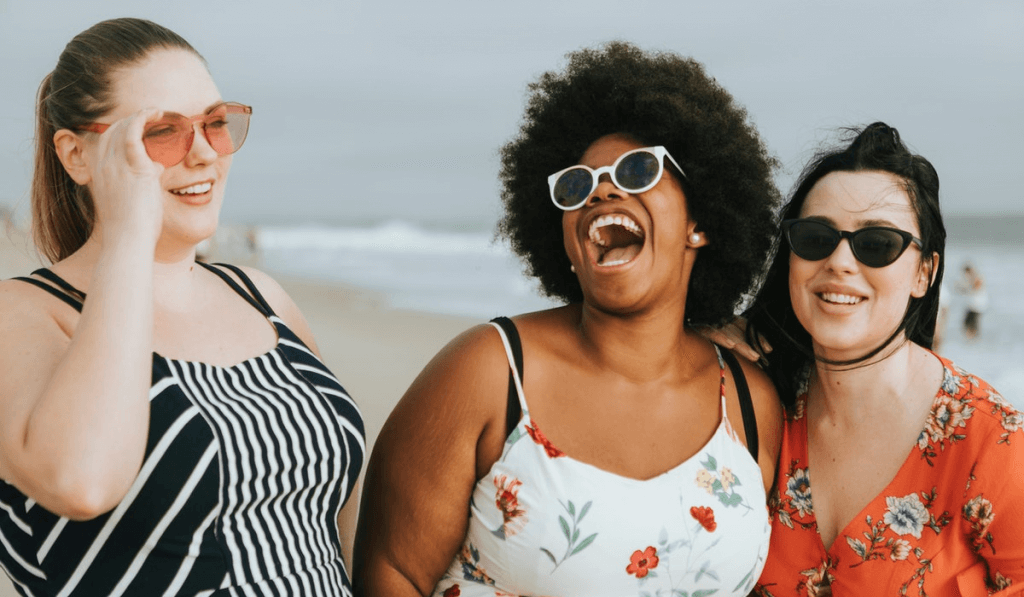

Sustainability and health beyond dieting
The single most powerful advantage of a weight-neutral and non-diet approach like the Going Beyond The Food Method️ is sustainability. It helps you develop the ability to sustain health-promoting behaviors throughout your life.
Certainly, when it comes to health, consistency is significantly more powerful than short-term results.
A 2015 study systematically reviewed a weight-neutral and no-diet approach to health. It determined the overall effects on factors including weight, biochemical measures, food, activity, behavior, body image, and mental health.
- Weight stability (in 5 yrs)
- Improved biochemical markers
- Cholesterol, blood sugar, blood pressure, CRP
- Sustained healthy behaviors & Improvement in:
- Dietary quality
- Psychological states
- Disordered eating patterns
- Self-esteem
- Depression
Who is an ideal candidate for a weight-neutral approach to health?
Truly anyone! Individuals who’ll benefit most from this approach are:
- Chronic dieters
- Women who are overly concerned with weight and shape (a.k.a. body image issues)
- Those who are repeatedly trying to lose weight and restricting food for two years or more
- Women who have had enough of dieting and regaining the weight that they lost
- Women who are intuitive eaters
Why it’s hard to change your beliefs about weight and health
Your reptilian brain is the reason why it’s not easy to let go of beliefs. It’s the most primal part of your brain that has the survival instinct. It seeks to protect you from danger. Because the diet culture has programmed your reptilian brain into believing that fat people aren’t healthy, you’ve since associated health with thinness.
That’s why your approach to health must also include mindset and thought reprogramming tools to help you change your core beliefs and negative self-talk. That’s what we do first inside our Conquer & Thrive community… been there done that as they say.
You can view the methodology in more details here.
Get started with the weight-neutral approach to health
To help you get started with the weight-neutral approach to health and make peace with food and your body, I have created a free audio guide for you to know exactly what to do when you stop dieting, emotional eating, binge eating and body image issues. Claim your way to freedom now!
What does it mean to be healthy?
Good health is essential to being able to handle stress and live a long and active life. It doesn’t just refer to the absence of disease, but also to the ability to recover from illness, to adapt to life challenges in general.
Does “obesity” cause one to be unhealthy?
The keyword here is CAUSE. Before we can answer the question, we must first understand the difference between correlation and causation. For example, smoking is correlated with alcoholism, but it doesn’t cause alcoholism. However, smoking causes an increased risk of developing lung cancer.
Is health beyond dieting and weight loss possible?
Yes, and scientific research proves it!
A study found that 47% of people classified as overweight by BMI and 29% of those qualified as obese were healthy based on at least five of those other metrics. Meanwhile, 31% of normal-weight people were unhealthy by two or more of the same measures.
What is a weight-neutral approach to health?
A weight-neutral approach to health is based on the idea that your health status or risk level can’t be determined solely by your weight.
It acknowledges that your weight is determined by a complex set of genetic, metabolic, physiological, cultural, social, and behavioral determinants. Many of these factors are either difficult or impossible to change.
Who is an ideal candidate for a weight-neutral approach to health?
Truly anyone! Individuals who’ll benefit most from this approach are:
>> Chronic dieters
>> Women who are overly concerned with weight and shape (a.k.a. body image issues)
>> Women who are repeatedly trying to lose weight and restricting food for two years or more
>> Women who have had enough of dieting and regaining the weight that they lost
>> Women who are intuitive eaters
Why it’s hard to change your beliefs about weight and health
Your reptilian brain is the reason why it’s not easy to let go of beliefs. It’s the most primal part of your brain that has the survival instinct. It seeks to protect you from danger. Because the diet culture has programmed your reptilian brain into believing that fat people aren’t healthy, you’ve since associated health with thinness.
Where do you start to make peace with food?
Throughout my research, I’ve discovered that there is more to overeating, emotional eating and even binge eating than just food.
Most patients & students with food struggle will have body image struggle, negative mindset, overthinking behaviors. They are overwhelmed with an emotional roller coaster, lack confidence with food choices, low self-esteem. Moreover, they put their life on hold until they “lose the weight once and for all”.
This article talks about how to start to make peace with food and your body. In addition, I share how you can end the diet cycle to empower you to be your own expert. Here’s what you’re going to learn from this blog post:
How I started to make peace with food
Free resource to get started to make peace with food
How I started to make peace with food
Eight years ago, that was me. I consulted with a variety of specialists and experts hoping they would find what was “wrong” with me and that I could finally find the solution. Each appointment or purchase resulted in a few hundred $ and a new diet or protocol.
I would follow the guidelines, and yet I was always back to the starting point within weeks and months. This went on for years…
You see… There’s nothing wrong with me that could be fixed with a diet or protocol. The approach made everything worse. It compounded the side effects, made me gain more weight and have a deeper emotional relationship to food.
There’s nothing wrong with you. In fact, emotional eating, overeating eating and weight gain are part of the diet model. The diet and weight loss industry wants you to believe there’s something wrong with you because that belief keeps you coming back. Likewise, it keeps you feeling broken… keeps you feeling unworthy. That’s what we call the diet culture.
What is Diet Culture?
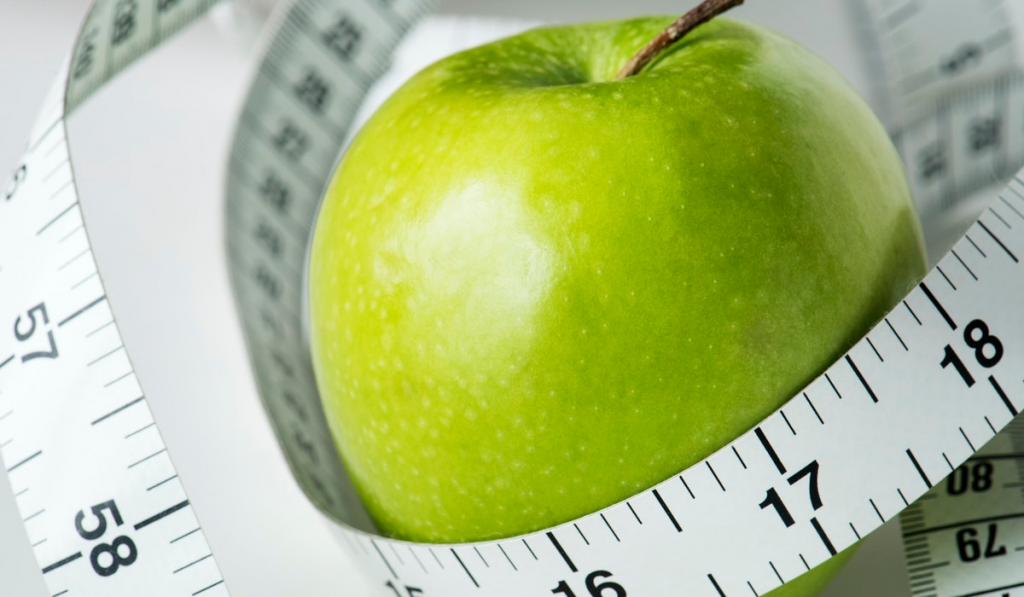

Diet Culture is defined as the worship of thinness and equating it to health and moral virtue. If you’ve been part of this culture, you might have spent your whole life thinking that you’re broken just because you don’t look like the “thin ideal.”
Diet Culture promotes weight loss as a means of attaining what it perceived to be a higher status—the thin ideal. Certainly, it oppresses people who don’t match up with its supposed pictures of health and attractiveness.
It compels you to spend a massive amount of time, energy, and money trying to shrink your body, even though intuitive eating research clearly shows that almost no one can sustain intentional weight loss for more than a few years.
The good news is, it’s just a cultural movement. Belonging to a cultural movement is completely optional and something that you can say “no” to. Most importantly, you have the power to make the choice to be free from this oppressive culture.
How to break the diet cycle to make peace with food?
Breaking the Diet Cycle is possible and will come as a result of healing our relationship to food with acceptance and compassion. Moreover, it can be achieved by seeking to heal our relationship to food, respecting our natural hunger and fullness cue and accepting our bodies.
Intuitive Eating is a proven and well-researched self-care eating framework that teaches us to have a healthy relationship to food, therefore, empowering you to trust your ability to meet your needs, distinguish between physical and emotional hungers, and ultimately, develop body wisdom.
Intuitive Eating is the most effective approach to recover from years of dieting. In fact, that’s what changed my relationship to food and body and allowed me to start living my full life right away without having to lose weight.
This is what I teach women inside our Conquer & Thrive community so they, too can make peace with food and their body, and start living their full life now. Yes, it’s possible!
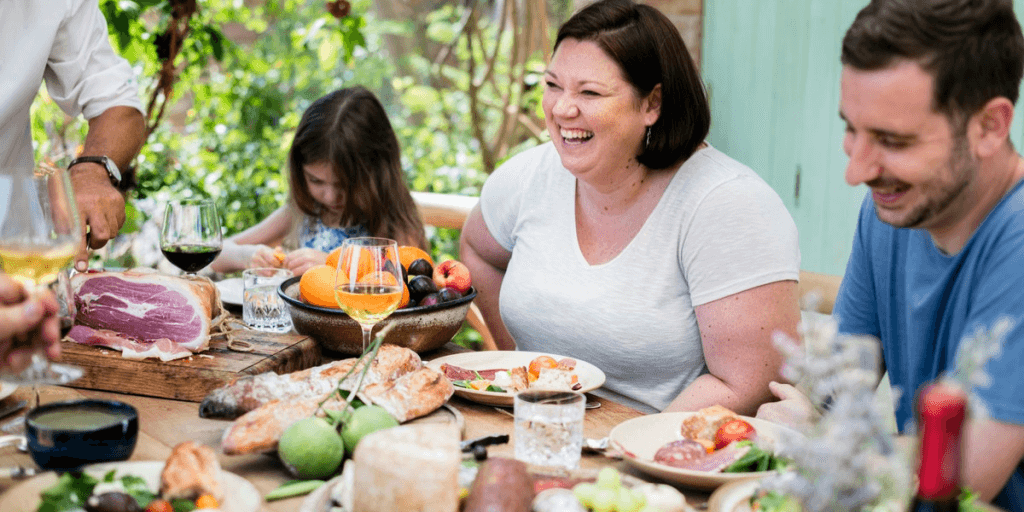

Free resource to get started to make peace with food
To help you get started to make peace with food and your body, I have created a free audio guide for you to know exactly what to do when you stop dieting, emotional eating, binge eating and body image issues. Claim your way to freedom now!
How I started to make peace with food
Eight years ago, that was me. I consulted with a variety of specialists and experts hoping they would find what was “wrong” with me and that I could finally find the solution. Each appointment or purchase resulted in a few hundred $ and a new diet or protocol.
The approach made everything worse. It compounded the side effects, made me gain more weight and have a deeper emotional relationship to food.
What is Diet Culture?
Diet Culture is defined as the worship of thinness and equating it to health and moral virtue. If you’ve been part of this culture, you might have spent your whole life thinking that you’re broken just because you don’t look like the “thin ideal.”
How to break the diet cycle to make peace with food?
Breaking the Diet Cycle is possible and will come as a result of healing our relationship to food with acceptance and compassion. It can be achieved by seeking to heal our relationship to food, respecting our natural hunger and fullness cue and accepting our bodies.
Free resource to get started to make peace with food
To help you get started to make peace with food and your body, I have created a free audio guide for you to know exactly what to do when you stop dieting, emotional eating, binge eating and body image issues. Claim your way to freedom now!
This Is Why You Struggle With Food
Whenever I meet new women and tell them about my mission of spreading awareness about how women can end their struggle with food and be at peace with food and their body without being on a diet. That we can be healthy without being thin and we can access optimal health and happiness unconditionally, women always say, “Wow, is that possible?” to which my response is…
“Yes. It’s actually our birth right, sister. You and I weren’t born to be on diet and hate our bodies.”
And then the conversation always turns to…. “Well, it’s different for me, Stephanie” or “I’m so “screwed” up when it comes to food not sure it can ever change” or “I’ve tried before”.
My answer: “First sister, there’s nothing wrong with you. The problem is not you, it’s what we’ve been taught about food and our bodies. The problem is the diet model, not you.”
This article tackles why you struggle with food and teaches you how you can make peace with food and your body. Also, I share how you can end the cycles of yo-yo dieting and empower you to be your own expert. Here’s what you’re going to learn from this blog post:
What’s the antidote to the eating pendulum swing
Innate body wisdom
You see humans were born with this innate wisdom that allows us to know what, when and how we should eat. If you have children, you know that… babies cry when they’re hungry and refuse to eat when they are full. They naturally know how to regulate their eating and accepting of their body. All of us women were once like that too, that is until we went on our first diet.
We were intuitive eaters and neutral with our bodies. Diet and diet culture did a “number” on our relationship to food and our body.
Research is clear that dieting has three main side effects:
- Short term weight loss and long term weight gain
- Major stressor to our mind and body
- Distort our relationship to food and body image
Why do we struggle with food?
I hope you’re ready for this because once you see it, you can’t unsee it.
You see, most women have been hypnotized by the societal narrative that says it’s NORMAL for women and even HEALTHY to be on a diet. (I was too for 25 years more.)
If you read that sentence and right away your brain says “Well, some diets are healthy”, if that’s you that’s a good sign that you are hypnotized, too.
I really, really, really want to get you to understand that diets do not work. But in order for me to do that, I need to show you something:
That was my life for 25 years…. dieting and then overeating. Cravings all the food I restricted to lose weight to regain the weight lost.
Diets don’t work
Studies after studies the results are clear: 95-98% of dieters regain all of their weight within 1-5 years Just like I did. Maybe just like you?
Diets don’t work because of how reptilian brain reacts to food restriction and deprivation. Our brain perceives dieting as a threat to our well-being and engage in a protective reaction. Cravings, emotional eating, overeating aren’t due to a lack of willpower or discipline rather a biological reaction.
Why does our eating swing like this? Simply our body is responding to the period of starvation (dieting) with a period of feasting. And no, we can’t get away from this primal survival behaviors hence why 95%of dieter experience it.
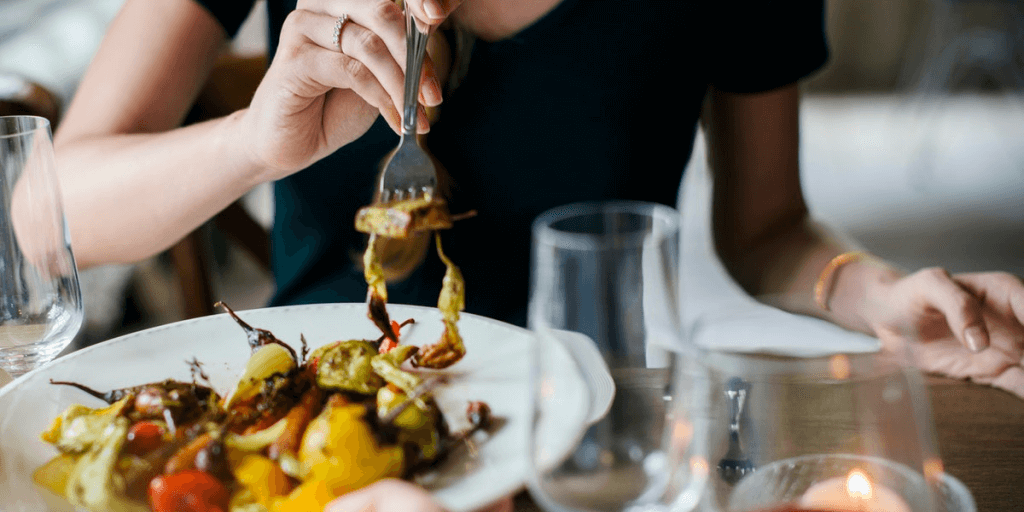

What’s the antidote to the pendulum swing?
Love. Respect and Trust.
Just as a pendulum won’t abruptly stop at center, you won’t either. You will probably swing back and forth between restriction and chaos a few times before your pendulum (mindset, feelings, thoughts, behaviors) gently settles into the middle. Is it uncomfortable? Yes, it can be. But not as uncomfortable as spending the rest of your life swinging wildly.⠀⠀⠀⠀⠀⠀⠀⠀⠀
⠀⠀⠀⠀⠀⠀⠀⠀⠀
Honour your hunger even when you’re afraid of what that means. Strive for satisfying meals even when your brain is shouting “don’t eat those carbs!” Learn to listen to your body’s natural hunger and fullness cues. Remember no food is off-limits, so there’s never an emergency to finish eating what’s on your plate.⠀⠀⠀⠀
That’s what I call Going Beyond The Food. Helping women make peace with food and body. Ending the cycles of yo-yo dieting and empowering women to be their own expert. You being the boss of YOU. Learn how we do this by joining our Conquer & Thrive community.
⠀⠀⠀⠀⠀⠀⠀⠀⠀
And know this calm and collected approach to eating is all possible for you, when you’re ready to stop restricting. 💗
Why do we struggle with food?
Most women have been hypnotized by the societal narrative that says it’s NORMAL for women and even HEALTHY to be on a diet. In short, we were socialized to be on a diet.
Why diets don't work
Diets don’t work because of how reptilian brain reacts to food restriction and deprivation. Our brain perceives dieting as a threat to our well-being and engages in a protective reaction. Cravings, emotional eating, overeating aren’t due to a lack of willpower or discipline rather a biological reaction.
The antidote to the pendulum swing
Love. Respect and Trust.
Just as a pendulum won’t abruptly stop at center, you won’t either. You will probably swing back and forth between restriction and chaos a few times before your pendulum (mindset, feelings, thoughts, behaviors) gently settles into the middle. Is it uncomfortable? Yes, it can be. But not as uncomfortable as spending the rest of your life swinging wildly.
Innate body wisdom
Humans were born with this innate wisdom that allows us to know what, when and how we should eat. If you have children, you know that… babies cries when they’re hungry and refuse to eat when they are full. They naturally know how to regulate their eating and accepting of our bodies. All of us women were once like that too that is until we went on your first diet.
Non-Diet Approach for Health Coaching
When I first started in my nutrition practice the term “non-diet approach” didn’t even cross my mind. “Anti-diet approach” didn’t even exist. Unbeknown to me, I was practicing the “diet approach to nutrition” simply because that’s what was taught in health & nutrition school.
Fast forward close to 10 years now, a lot have changed. The non-diet approach is growing rapidly, so has the anti-diet approach and intuitive eating is booming.
So, let’s discover what is the non-diet approach.
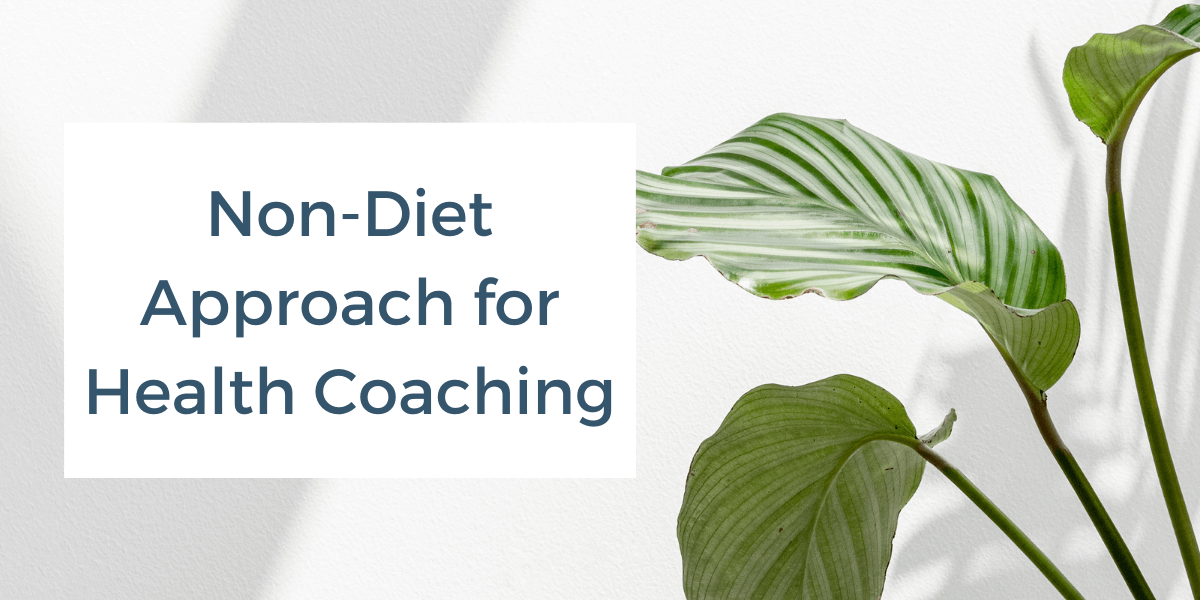

Core values of the non-diet approach
The pillars of the non-diet approach
Non-diet approach training for professionals
What is the non-diet approach?
The non-diet approach to health coaching & nutrition is the exact opposite of dieting. It recognizes that food, eating and body weight aren’t the problem to be fixed. It’s a weight-neutral approach to health instead of focusing on a weight-oriented outcome. This approach focused on all the other factors that can impact one’s health beyond body weight. In other words, the ultimate goal is to support the patients to become their own experts at their bodies.
The Going Beyond The Food Method™️ is our proprietary methodology that helps women to recover from diet culture and learn the non-diet way of life. Firstly, our 4 pillars are Body Wisdom, Body Trust, Body Respect, and Body Neutrality. Secondly, our framework is composed of 5 steps process: Intuitive eating, Body Neutrality, Self-Coaching, Emotional Intelligence, and Mindfulness.
Core values of the non-diet approach
The non-diet approach to health coaching and nutrition holds key core values: Fundamentally, it recognizes that diets do not work. It’s holistic in nature. It is focused on the Why not the What, it’s focused on finding solution that are based on love and compassion. Moreover, it believes that all humans and bodies are worthy.
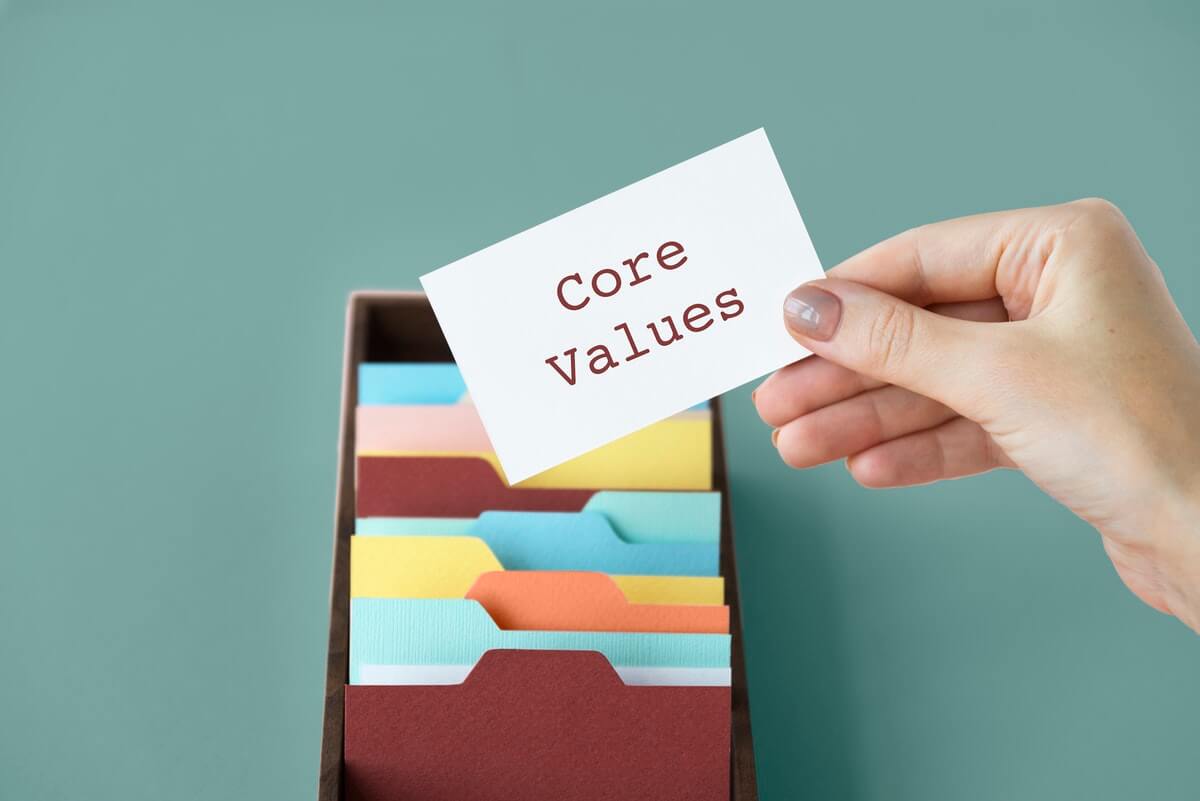

Diets don’t work
A 2016 study by researchers at UCLA studied 40,420 adult participants in the most recent U.S. National Health and Nutrition Examination Survey. Researchers looked at the participants’ health as measured by six accepted metrics (not including BMI). These metrics are blood pressure, cholesterol, triglyceride, glucose, insulin resistance, and C-reactive protein.
The study found that 47% of people classified as overweight by BMI and 29% of those qualified as obese were healthy based on at least five of those other metrics.
Meanwhile, 31% of normal-weight people were unhealthy by two or more of the same measures.
A number of research studies show that weight loss is not necessary to improve physical health. Studies have also found that fitness is more predictive for mortality than weight. This study defined ‘fit’ as 3-4 hrs per week of walking.
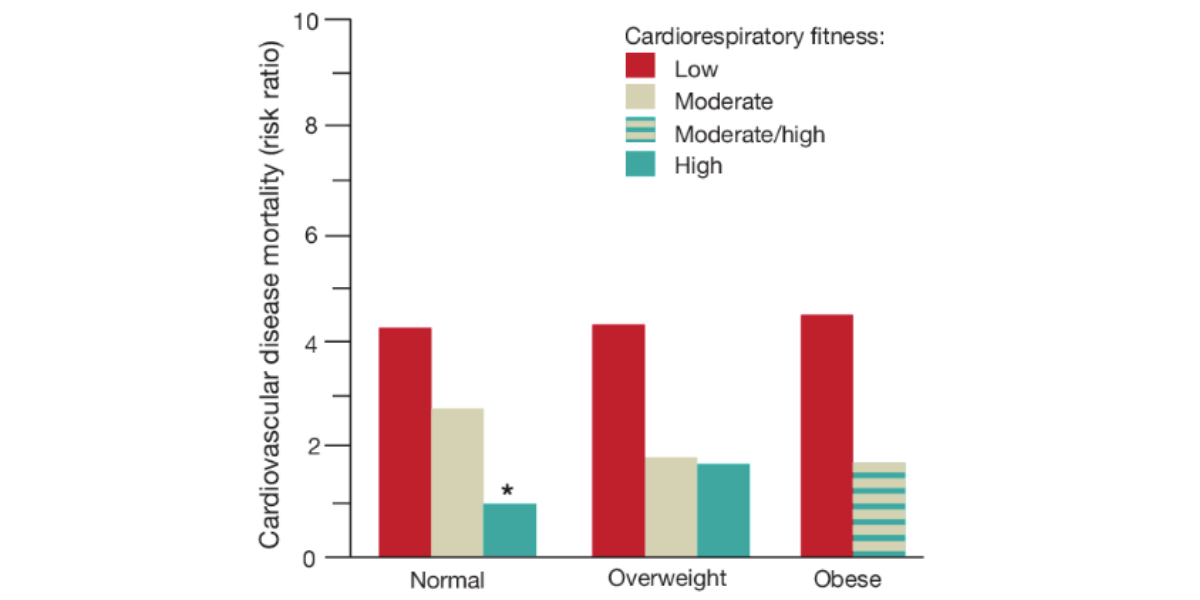

Note: “Fit” is not synonymous with “thin” or “lean.” That’s Diet Culture. Being fit means being in good health, especially because of regular physical movement.
Furthermore, trying to change your health status simply by losing weight has not only proven to be an ineffective approach but also carries potential negative side effects to your health. The focus on intentional weight loss via dieting can be harmful. Multiple studies demonstrate negative side effects of dieting behaviors. The three most documented negative effects are weight cycling, disordered eating, and weight stigma.
The non-diet approach for health coaching is holistic
The World Health Organization defines health as “a complete state of physical, emotional, and social well-being, not merely the absence of disease or infirmity.” The non-diet approach is a weight-neutral approach to health is based on the idea that your health status or risk level can’t be determined solely by your weight.
Instead it recognized that humans are more than a physical body: mental, emotional, spiritual and physical human bodies.
Its focus is on the WHY instead of the WHAT
The non-diet approach looks at the root cause of the behaviors. For example, when considering nutrition it considers why the individual is eating instead what the individual is eating. What we eat, how we eat and when we eat come second to why we eat.
Compassion versus fear-based threat
The non-diet approach will help the client switch his approach to health behavior to one of compassion for self. It will help form a relationship of respect towards one’s body helping the client to make choice based in love for body and self instead of fear (fear of disease, fear of weight gain, fear of other people opinion, etc…)
All humans are worthy; All bodies are worthy
The non-diet approach is grounded in the fact that all humans are worthy therefore all bodies are worthy. The non-diet recognizes the danger to one’s health when face with any stigma, discrimination or prejudice.
Therefore, the non-diet approach must be anti-discriminatory: anti-fatphobia, anti-racist, anti-sexist, anti-transphobia, anti-classist, non-binary, etc.
The pillars of the non-diet approach for health coaching
When practicing the non-diet approach to health and nutrition with clients, practitioners must follow a sequential order in their approach. Although adaptable in nature, some fundamental pillars must be in place
1. Investigation of belief and history
The first step is for the practitioner to have a clear understanding of the current state of their clients/ patients relationship to food and body. A number of assessments are available: Intuitive eating assessment, Body Acceptance Assessment and Dieting Impact Inventory.
Next, the practitioner will help the client understand how they go to be where they are right now using a dieting timeline. It’s very important for the patient to understand that it’s not their fault but instead diet culture.
2. Mindset & Unlearning Diet Culture
The next phase of the non-diet approach is the most important: unlearning. Unlearning the diet mindset, dogmatic beliefs about food and exercise, the thin ideal, etc..
When we trained professional inThe Going Beyond The Food Method™ our practitioners are trained in a Cognitive Behavior Therapy approach called Self-Coaching. This will be the tool they will teach their client to help them unlearn Diet Culture.
3. Attunement & Reconnecting
As the client progress in unlearning diet culture the next steps will be to help patient to reconnect with their body via body sensation. Using various mindfulness approach our graduates of our non-diet certification have a number of tools available to them to teach their client attuned with their body.
The first set of sensations we focus on with the clients are eating cues: hunger, fullness and satisfaction. Gradually, clients will be able to trust their own ability to read and interpret their innate body sensations.
4. Emotional Intelligence & Processing
As the client gets more attuned to her own innate body wisdom, the focus will shift to building skills set to process emotions & feelings. One of the most effective tools for this step is deconstruction of the eating behavior using two questions: What am I feeling? and What do I need?
The outcome of these pillars is to build emotional intelligence and shift the individual engagement with their emotions from Reacting to Responding.
5. Empowerment & Relearning
The non-diet approach is truly beyond the food and this next pillar is the reason behind this powerful transformative process.
To help build empowerment, the process of habituation will be use to help client regain power over fear foods. Gradually reclaiming their power at first with food and naturally expanding their empowerment to other part of their life using their inner wisdom.
6. Respect & Liberation
In this last step practitioner will support client in the process of rebuilding a relationship of respect with their own body. Engaging in body image healing using body neutrality and Health At Every Size approach to help build an inventory of health promoting behaviors.
At this point in the process client is also ready to re-engage with food using a gentle nutrition philosophy and with exercise using a joyful movement approach.
Non-diet approach training for professional
We have created a number of free non-diet approach training resources to help you begin learning more about this revolutionary health approach. Join my non-diet professional community by requesting our non-diet professional starter pack.
You can also listen to our non-diet podcast.
The non-diet approach mentorship program
The Going Beyond The Food non-diet approach mentorship program is a space where you can receive support guidance to become the best non-diet professional. It’s a program geared to refine your non-diet professional skills set and teach you the skills you need to build a successful business that can impact thousands of women. It will help you develop as a powerful leader and help other women come back to their power. You will learn how to harness your ability to support and help other women. As a result, you can impact thousands of other women and dismantle diet culture.


Non-Diet Approach FAQs
The non-diet approach to health & nutrition is the exact opposite of dieting. It recognizes that food, eating and body weight aren’t the problem to be fixed.
It’s a weight-neutral approach to health instead of focusing on a weight-oriented outcome. This approach focused on all the other factors that can impact one’s health beyond body weight. In other words, the ultimate goal is to support the patients to become their own experts at their bodies.
The non-diet approach to health and nutrition holds key core values: Fundamentally, it recognizes that diets do not work. It’s holistic in nature. It is focused on the Why not the What, it’s focused on finding solution that are based on love and compassion. Moreover, it believes that all humans and bodies are worthy.
1. Investigation of belief and history
2. Mindset & Unlearning Diet Culture
3. Attunement & Reconnecting
4. Emotional Intelligence & Processing
5. Empowerment & Relearning
6. Respect & Liberation
We have created a number of free non-diet approach training resources to help you begin learning more about this revolutionary health approach. Join my non-diet professional community by requesting our non-diet professional starter pack.
You can also listen to our non-diet podcast.
The Going Beyond The Food non-diet approach mentorship program is a space where you can receive support guidance to become the best non-diet professional. It’s a program geared to refine your non-diet professional skills set and teach you the skills you need to build a successful business that can impact thousands of women.
Intuitive Eating Mentorship For Professional: First Do No Harm
I help women with intuitive eating mentorship programs today but it wasn’t always so…
8 years ago, I was 2 years into my nutrition practice, Carolyn walked into my office. And she had just been diagnosed with high blood pressure and high cholesterol. She desired to be “healthier”.
I proceeded to take a diligent intake. And this intake process included a food journal, detailed health history as well as a symptomology assessment. Based on my assessment I concluded that a “whole food diet” would support her goals. Along with other lifestyle modifications.
Not only how I was teaching nutrition different but also my approach. So Carolyn would add foods to her plate instead of removing foods. Carolyn left my clinic with her food list, food journal and “ideal plate” handout in hands.
Then two weeks later she was back for a follow-up. Within 10 minutes, she was in tears.
“I’m so sorry Stephanie I wasn’t able to follow what you told me to do and thought this time would be different. My urges to binge on processed food at night are back in full force. “
“I ate my kids’ food in secret. What is wrong is wrong with me??”
Are we causing harm to our clients?
Shifting to a non-diet approach to health
The Going Beyond The Food Method™️
Non-Diet Professional Training
If you would like to listen to the article in audio format the Going Beyond The Food Show – Pro Series Season 1 Episode 1
Links mentioned on the episode
PRO Series – Free Training & resources
Non-Diet Coaching Certification
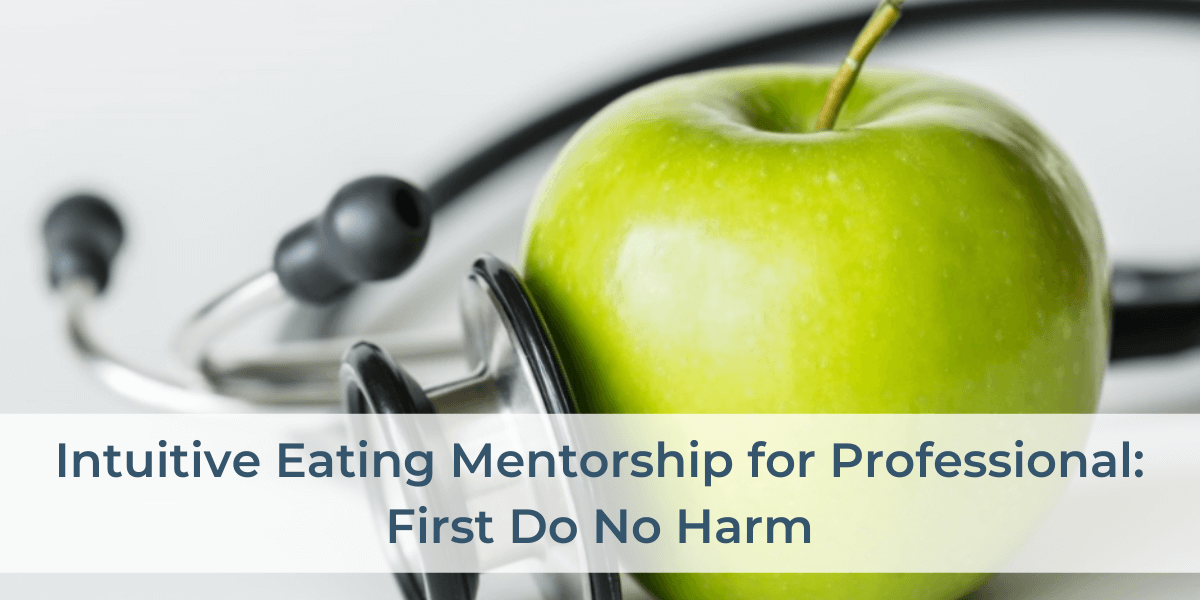

Are we causing harm to our clients?
We do not know what we do not know.
I was aggravating an underlying condition for Caroline. Not only did Carolyn had a disordered relationship with food but also with her body image due to years of chronic dieting. And all of my assessment tools and training never accounted for this condition. I was neither taught to assess how patient-related to food or to consider past dieting behavior in my assessment.
Fast forward 8 years later. When I reflected back on my first few years of practice not only most of my female clients were in fact in a disordered relationship with food but I also was.
Most nutrition experts engage in disordered eating
In 2012, an international study in 14 countries found a whopping 77 percent of nutrition students felt that eating disorders were a concern among their peers. And the reasons behind this are complicated: theories run from an obsessive overexposure to information about food and exercise, to pressure within degrees to be an “ideal nutritionist.”
Individuals that develop disordered eating may at first initiate a quest for a healthier lifestyle but then dysfunctional, compulsive beliefs about food emerge that then impair health, work, and social functioning.
If you are curious to know if have a disordered relationship to food then you should complete our free professional Non-Diet Coaching intake forms. Assess yourself and share your results with us!
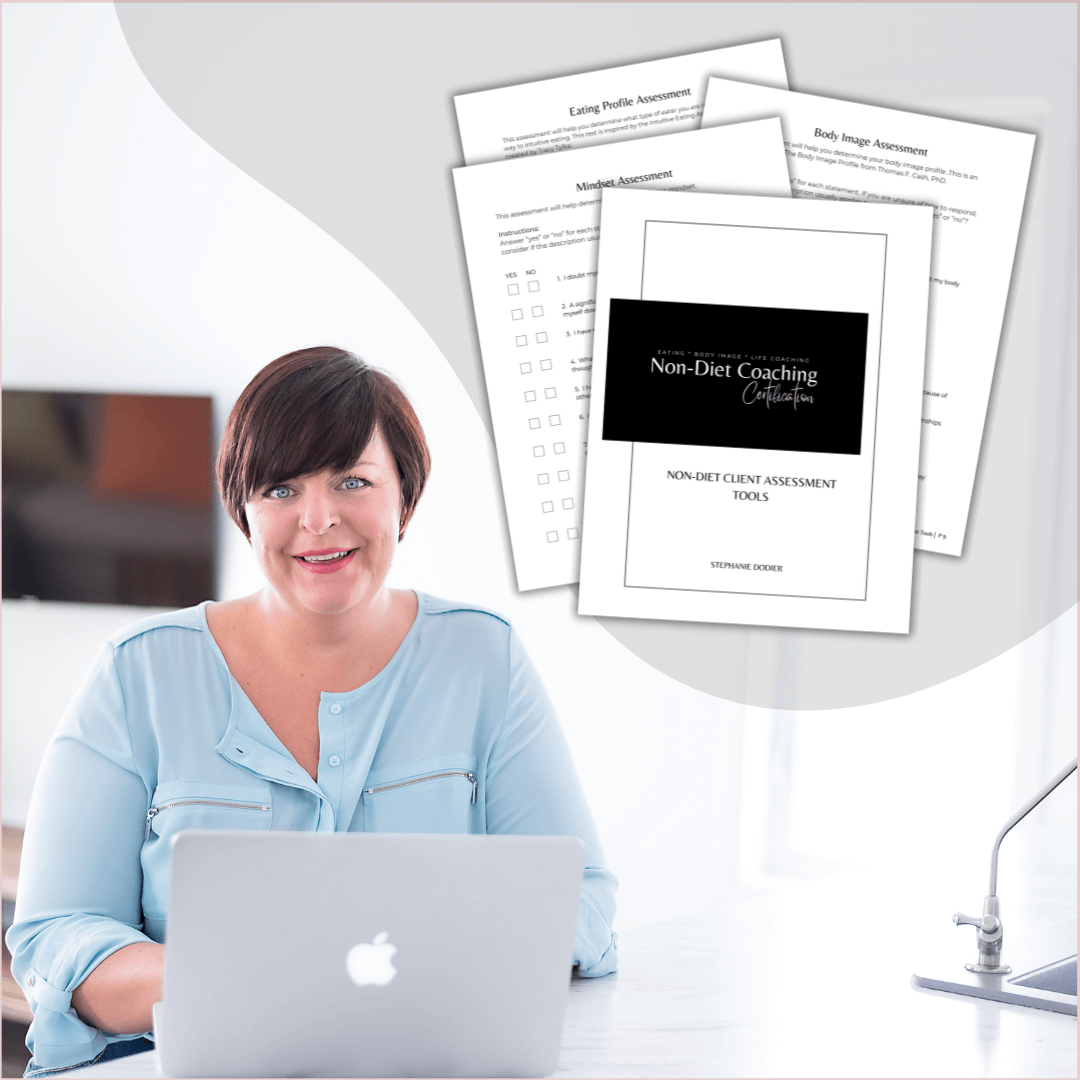

Shifting to a non-diet approach to health
Carolyn was the most impactful client-practitioner I have had to this day.
Not only did she triggered in me a must needed professional shift but also a personal transformation. So my quest for another way of serving my client and healing myself began with her.
7 years ago when I searched for support, training and non-diet coaching certification nothing existed. Instead, I read the Health At Avery Size® research and book by Dr. Lindo Bacon. And then began applying a weight-neutral approach to health in my practice.
Over the next 4 years, I collected both a variety of professional and personal skills. This collection of tools is today known as The Going Beyond The Food Method™️. And this non-diet methodology is currently taught in Undiet Your Life Coaching Program
The Going Beyond The Food Method™


The Going Beyond The Food Method™️ is a way of working with clients and patients which removes that emphasis and pressure to eat for weight loss or health. Instead, it embraces the Health At Every Size® weight-neutral approach to health, intuitive eating, body neutrality, mindfulness, and a self-coaching mindset.
This non-diet methodology respects the fact that each human has innate body wisdom. And that our the body knows what we need and what is best for us including food, eating, movement, weight, and self-care.
A practitioner who uses our methodology is focused on helping women rebuild a relationship of trust, respect, and neutrality with their bodies.The client is empowered to identify what will be best for her to optimize their own health and wellbeing.
At the core, a holistic based approach recognizing the 4 human bodies: mental, emotional, spiritual and physical human bodies. This non-diet approach for health coaches, nutritionists or any other health experts is a gentle process. And it focuses on skills building.
Ultimately, it’s about helping women conquer back their power and thrive unconditionally!
Intuitive Eating Mentorship
The Going Beyond The Food Mentorship program is an intuitive eating mentorship program, an anti-diet training and body image professional training. And it’s designed to support health professionals desiring to shift their practice to a non-diet model.
This is what I was seeking but couldn’t find years ago.
As a professional, a non-diet approach to health and nutrition can be scary as it empowers your client and patient to be their own health expert.
Non-Diet Coaching Professional Training
“If we are not going to hand out meal plans and “good and bad” food list, what will we do?”
That is a very common question and also a great starting point to understand which professional skills set will be required in a non-diet approach.
Food choices and healthy habits aren’t only derived from intellectual knowledge but also from our emotions and thoughts. This applied not only to healthy habits but to every habit we choose to do as a human.
As a non-diet practitioner, you will need to help with your clients with the mindset and emotional intelligence tools. We teach self-coaching for intuitive eating.
Chronic dieters and women who dislike their bodies are in their head instead of their bodies. You will need to help them come back into their body and to connect to their bodily sensation including their eating cues. Mindfulness is the perfect tool to cultivate body attunement.
Intuitive Eating Training
Intuitive eating is a well- researched and complete framework to help you reframe the before, during and after relationship to food with women. As a certified Intuitive eating counselor, I have studied directly with Evelyn Tribole and now included this empowering framework with all my clients in our non-diet online training.
As a non-diet professional, your skills wouldn’t be complete without a tool you can use to help your clients to heal their relationship with their body image.
Body Neutrality is the framework I have selected to teach in our program. It helps women understand that we aren’t defined by own physical bodies. This body image professional training goal is to respect and accept your body for what it is – and that’s it.
Non-Diet Business Coaching
Shifting your business to an anti-diet business model requires some small business adjustment mainly in the content of your professional services, health programs, and marketing.
Your intuitive eating business skills will require you to move to a serving message from selling messages. Your future client or patient will need to be educated about what is a non-diet and weight-neutral approach to health.
The 5-step process to build a successful Anti-Diet Business
1. Determine the non-diet business format that will support your personal goals
2. Define & refine your ideal clients and their needs
3. Create a non-diet service offer.
4. Market your offer or product using our exclusive non-diet transformation funnel system.
5. Deliver your product.
Bonus – Scale & Diversify


How to Get Started
We have created for you a number of free intuitive eating mentorship training resources to help you begin your research in the field of non-diet approach to health.
You can access this non-diet professional training by clicking here.
You will find non-diet online training, webinars, podcasts, and articles.
One last thing
Here’s the truth: As long as you teach any labelled diet (Keto, paleo, GF, DF, ….) and or handout food list and meal plan, you aren’t teaching sustainable health or nutrition. Point.
If the above is you, just about now you’re likely pissed at me. That’s ok sister! I get it. I was on the receiving end of this exact discourse about 4 years ago and I was mad but it planted a seed in my mind… and here I’m today!
It’s not your fault. As far as I know, today…no nutrition school or health coaching program currently offers Intuitive eating as part of their curriculum. So how were you supposed to know??
But now you know…. So, what will you do? Continue to arm people teaching diets or learn intuitive eating for yourself and slowly, gradually integrate it in your practice and help your client real sustainable changes.
It’s your choice. If you choose to opt-out of diet culture, we can help you in your journey.
We do not know what we do not know.
Most nutrition experts engage in disordered eating.
Individuals that develop disordered eating may at first initiate a quest for a healthier lifestyle but then dysfunctional, compulsive beliefs about food emerge that then impair health, work, and social functioning. If you are curious to know if have a disordered relationship to food then you should complete our free professional intuitive eating intake forms. Assess yourself and share your results with us!
Intuitive Eating Resources
I rounded up my best free intuitive eating resources, body neutrality resources, and Health at Every Size resources. It includes books, blogs, podcasts, programs, and courses.
Intuitive eating and body neutrality are increasingly becoming popular among women for a number of good reasons. For one, it’s been proven to lead to positive health outcomes. In addition, both are a healthy approach to health that puts you in control of your eating behaviours and body image.
Health at every size is the overarching weight-neutral health principle that drives the foundation of both intuitive eating & body neutrality.
This blog post is aimed at helping you discover intuitive eating resources to support you in your journey Going Beyond the Food: which means ditching diet culture, making peace with food and your body.
The meaning of Health at Every Size
My top 4 free intuitive Eating resources
Health at Every Size resources
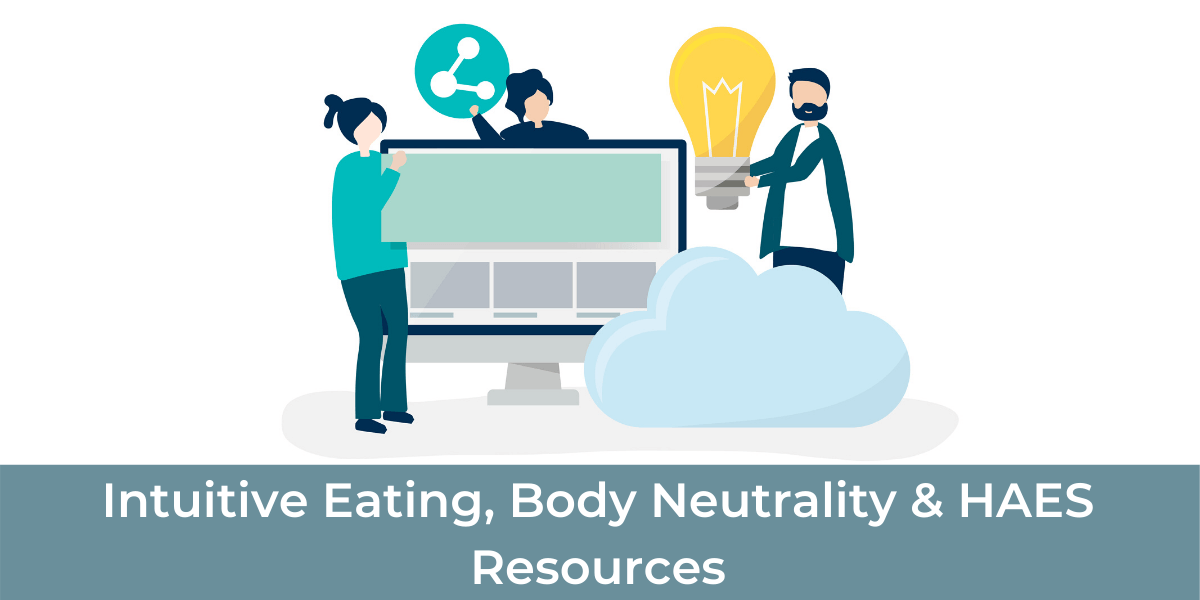

What is Intuitive Eating?
Intuitive eating is an evidence-based approach to eating that allows you to be the expert of your own body. And this self-care eating framework enables you to develop a healthy relationship with food and your body.
Moreover, it teaches you to trust your ability to meet your own needs, distinguish between physical and emotional hunger, and ultimately develop body wisdom.
Most importantly, eating intuitively is well–researched and proven health framework supported by more than 100 intuitive eating studies as of 2020.
What is Body neutrality?
Body Neutrality definition is about empowering you to embrace yourself as you are. That’s including the parts you don’t like about yourself. And its focus is to avoid self-hate while simultaneously relieving you from the pressure of having to love your body.
And the framework of Body Neutrality recognizes that not everyone is going to love every part of themselves all the time because that’s an unrealistic expectation, to say the least.
In short, the goal is to respect and accept your body for what it is – and that’s it.
What is Health at Every Size?
Health at Every Size definition is a philosophy and an approach to health. Linda Bacon, Ph.D wrote the book Health at Every Size: The Surprising Truth About Your Weight.
The book demonstrated through health at every size research and studies that health behaviours influence health more than weight.
Above all, the HAES movement promotes the simple truth that all bodies are good bodies. It shifts the focus away from dieting for weight control.
Instead, it steers you toward self-care practices that support your body’s natural wisdom and vitality.
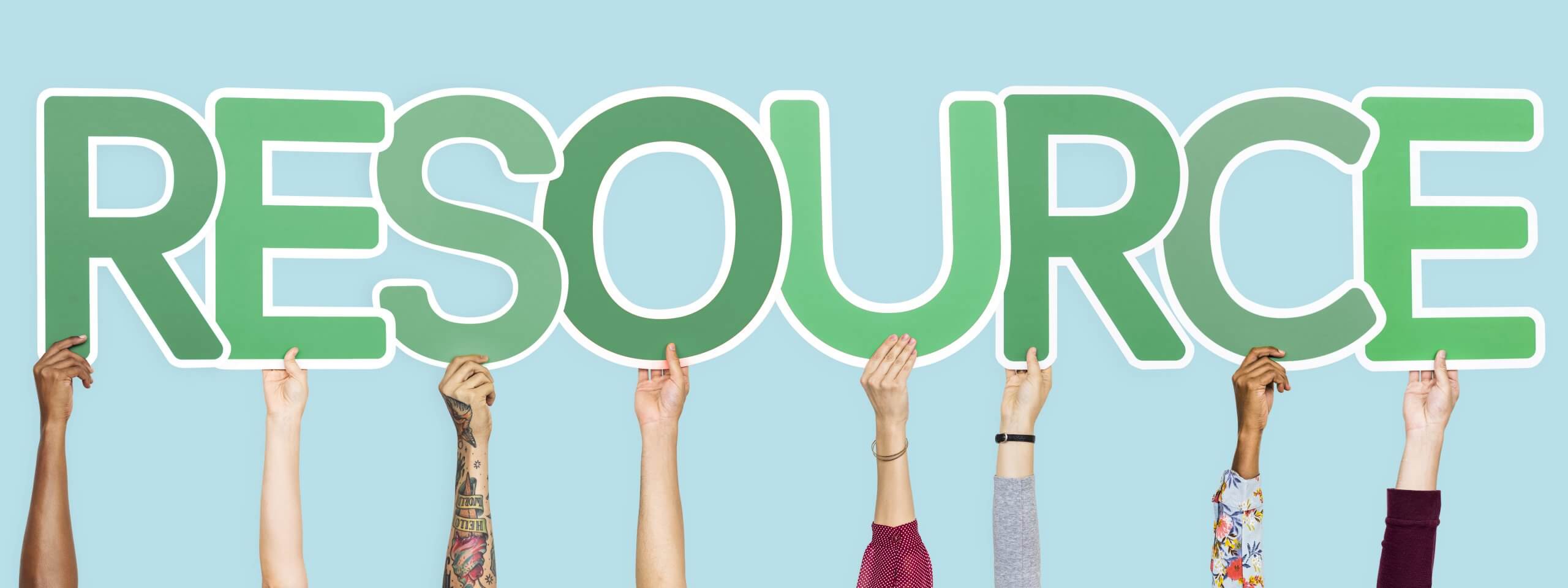

My top 4 free intuitive eating resources
#1 The Going Beyond The Food Show
This is my intuitive eating podcast. A collection of 200+ episodes that cover all topics about intuitive eating, body neutrality, and health at every size.
I suggest you get started at show 199 and move your way up!
#2 Health at Every Size Manifesto
A free HAES guide is provided by Dr. Linda Bacon. And it explains the Heath at Every Size approach to health and provides sustainable research-based evidence that demonstrates that health is accessible at any body size.
#3 Beauty Redefined
Beauty Redefined is a non-profit, dedicated to promoting positive body image online and in live speaking events. This website is run by identical twins Lexie Kite, Ph.D. and Lindsay Kite, Ph.D.
These two experts teach body image resilience through research-backed online education available on their website, and social media. Visit their blog and TEDx Talk.
#4 Get Started Guide
I created this free guide to help women understand the basics of intuitive eating. Most importantly, this guide is followed by a series of educative articles to help you to get started on this new journey.
Get the FREE guide here.


Intuitive Eating Resources
There are 3 levels of resources for you if you are ready to learn intuitive eating.
#1 Intuitive Eating Books
Evelyn Tribole is the ultimate intuitive eating expert, my teacher, and my mentor. She has dedicated her career to training health professionals with the intuitive eating framework.
All of our programs at Going Beyond The Food are certified by The Original Intuitive Eating Pro®.
#2 Structured Online Intuitive Eating Program
The Intuitive Eating Project is a 5-week online program.
In addition, it is a self-study program to teach you Intuitive Eating in an easy step by step, supported by an online community, and dozens of videos, guides and integration exercises. And it’s lead by myself, Intuitive Eating Expert, Stephanie Dodier CNP.
#3 Intuitive Eating Program Private Counselling
Two options for you:
#1 If you want to work with a local intuitive eating certified counsellor, then, you can visit this directory to locate someone to work with you 1-on-1.
#2 You can visit this intuitive eating coaching page on my website. Not only will you be able to read more on my coaching programs but also submit your application if you would like to work with me 1-on-1.
Most importantly, my 1-on-1 coaching is inclusive of body neutrality and health at every size alongside with intuitive eating.


Body Neutrality Resources
Are you ready to get started making peace with your body? Then, there are 3 levels of resources for you.
#1 Body Neutrality Books
I would suggest starting reading books. Things No One Will Tell FAT Girls by Jess Baker is a lived-experience book combined with research. This book was a game-changer!
The second book you should read is definitely The Beauty Myth: How Images of Beauty Are Used Against Women by Naomi Wolf. This is a classic that redefined the relationship between beauty and female identity. Body image issue is a feminist issue! Must read for all women.
#2 Body Image Courses & Programs
I would suggest two online programs. Both of these programs are a step by step structured program to heal your body image and make peace with your body.
#1 Beauty Redefined Body Resilience Program. A 8-week program to build body resilience by helping you navigate body shame, objectification, and unreal ideals.
#2 The Body Image Accelerator, this is my baby. A 5-part online program to help you accept your body using the body neutrality framework.
#3 Body Image Private Counselling
Two options for you:
#1 Jess Baker is a Recovery Support Specialist with a long history working as a Psychosocial Behavioral Specialist. With both formal education background and lived experience I’m pleased to recommend Jess. You can find more about working with her here.
#2 Would you like to work 1-on-1 with me? You can visit this intuitive eating coaching page on my website. Not only will you be able to read more on my coaching programs but also submit your application if you would like to work with me 1-on-1.
My 1-on-1 coaching is inclusive of body neutrality and health at every size alongside with intuitive eating.
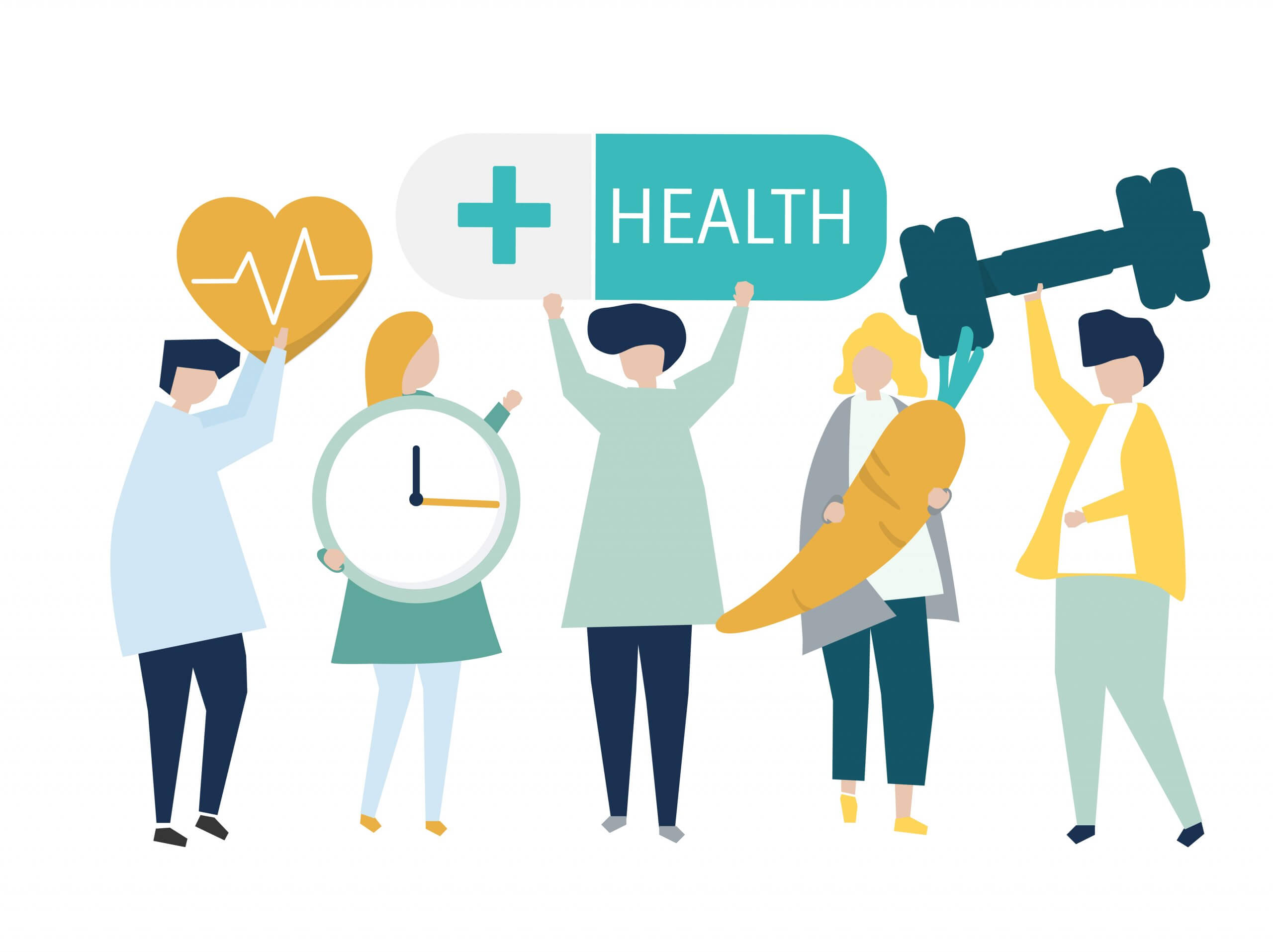

Health at Every Size Resources
Ready to relearn health and adopt a weight-neutral approach to health? I have a few options for you. Three levels of resources for you:
#1 Health at Every Size Books
The first place to get started is to read Dr. Linda Bacon’s Health at Every Size: The Surprising Truth About Your Weight. Think of this book as the bible of the weight-neutral approach to health.
Next, I would suggest my colleague, Christie Harrison’s book Anti-Diet. Her book is very well researched and structured for you to understand why health is available to you now!
#2 Health at Every Size Course
If you are looking for a step by step structured program to teach how to support your health in a weight-neutral holistic methodology…
Going Beyond The Food Health Mastery is a 9-module curriculum. And this program will teach you how to support your body towards the best health without having to lose weight. Not only without restricting food or taking any supplements! This program is taught by myself, Stephanie Dodier CNP.
#3 Health at Every Size Private Counselling
Want to work with a Health at Every Size care provider? You can visit this directory to locate someone to work with you 1-on-1.
[sc_fs_multi_faq headline-0=”h2″ question-0=”What is Intuitive Eating? ” answer-0=”
Intuitive Eating definition is an evidence-based approach to eating that allows you to be the expert of your own body.
This self-care eating framework enables you to develop a healthy relationship with food and your body.
Teaches you to trust your ability to meet your own needs, distinguish between physical and emotional hunger, and ultimately develop body wisdom.
I hope this helps sister!
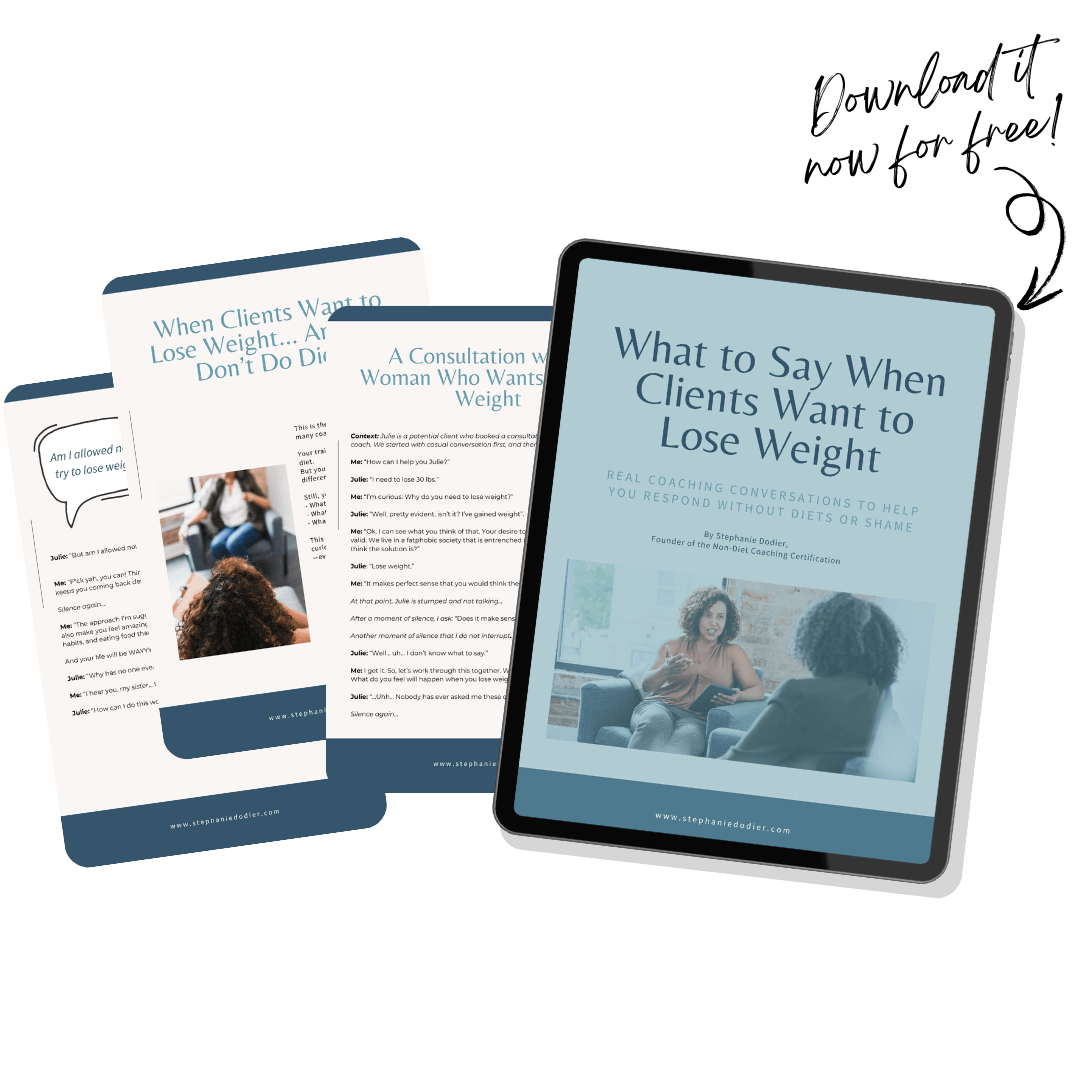

FREE GUIDE
What to say when a client want to lose weight
GET THE EXACT WORDS I USE IN REAL COACHING SESSIONS—WHEN WEIGHT LOSS COMES UP AND I’M HOLDING A WEIGHT-NEUTRAL STANCE


FREE GUIDE
What to say when a client want to lose weight
Get then exact word I use in real coaching session when weight loss comes up and I'm holding a weight-neutral stance
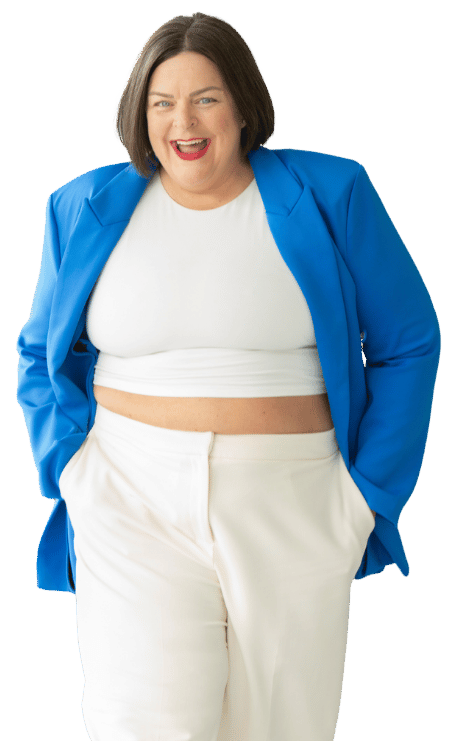

Welcome!
I’m Stephanie Dodier
I am a non-diet nutritionist, educator, and feminist business leader challenging everything we’ve been taught about food, health, and coaching.
I help health professionals confidently coach food and body without co-opting diet culture.
Join me in leading the health coaching revolution!
Ready? Let's do this!

